

PARTNERS
GENERAL PARTNER

GOLD PARTNERS


Special thanks to
Citadele, Morten Hansen, Ágnes Lublóy, Heidi Reinson, Kārlis Zenne, Nicolas Gavoille, Xavier Landes, Kata Fredheim, Annija Gaile, Zane Kalniņa, Danija Līva Jaundzema, all the gossipers and memers, and, of course, the insider tribe!
In case of any queries, contact insider@sseriga.edu or eskudra@sseriga.edu (Editor-in-Chief)


When brainstorming the theme for April, we asked ourselves what is April about? Some said “being funny ” Our Year 2s said “anthropology ” So we thought, why not both? Society meets comedy at least, that’s what we tried
Naturally, we had to ask Kata CEO of Anthropology for a story about a community or a tribe We begged: “Please give us something.” And she delivered. And oh boy let’s just say it’s a perspective we definitely hadn’t considered before You need to read it!
And what is more? A CROSSWORD PUZZLE?! Yup, that’s right From now on, each issue will include one Solve it in the issue, on a napkin, in your notes app just don t forget to send it to us!
In honour of the new Hunger Games movie, we also bring you… real-life Hunger Games But that’s not the only dystopia we ’ re serving Expect a few effects and articles that will make you Think™
Of course, we ve also got pieces just for laughs - from the best pop culture pranks to a very passionate article about socks Why not?
Serious? We got you Silly? Also got you
And as tradition goes, don’t miss the playlist of the issue, curated by Nicolas and Xavier Listen for a bit of May luck
xoxo, The Insider
T H E
E D I T O R I A L
A p r i l


20 MEET ÁGNES
Y1s, your first year is coming to an end but the fun has been saved for last This is the time when you become closer to being financial analysts and memorize 50 ratio formulas with Agnes by your side

22 INSIDER SPECIAL
Not all roads from SSE Riga lead to finance We can't forget about marketing Not only is Karlis in marketing, but also a member of the band - Singapuras Satins A truly diversified portfolio, in our opinion


Our theme is on society and that is why we thought who better to ask than our dear anthropologist Kata We just said “tell us something” and she did you definitely do not want to miss this one



Associates of the Month

Whines and complains all day long about his duties, but never disappoints with the results A truly dedicated member of the

Having just recently joined BusCom in winter, Roberts found a sponsor for an event that was taking place in LESS THAN A WEEK!!!! Now, that’s impressive


Robertino criplerino posting football practices on one leg and finishing the drink on the other

Wasted hours to get the DoO website up and running - only for it to collect dust



Always one step ahead - Ruta is the hardworking associate of any chief’s dream A little scared there might be some mindreading taking place, because she just gets it!



Whenever you ’ re desperately searching for answers to your study questions, guess who already sorted it all out? Liva – the legendary keeper of the student material vault, our academic fairy godmother with a spreadsheet wand.
While not studying, Elina is a superhero - she always saves the day no matter what! I am immensely thankful for your posters, social media work and persistent support in the committee! Thank you for being such a star!





Katrino giraffino creating the running while the drinks keep pouring




wouldn’t have been CofFE without some coffee Big thanks to Davids who not only took care of getting the big heater tanks but also showed up long before the start of lectures (some days even at 7 AM!) to help prepare the



Krista – the go-to guru and lifesaver for all EduCom associates Got a question? Ask Krista Got any question? Still Krista She’s always ready to help, always patient, and honestly the angel we ’ re incredibly lucky to have by our side!




Such a great associate to have, and I am not sure what we would’ve done without you in the morning after Takeover






Ancerito petiterino helps with marathon T-shirts by saying ‘make it pop ’ 5'3, but swears she’s 5’5 on a good day
CofFE
coffee station for our dear FE zombies :D


Valters Ozoliņš

A fresh and very valuable addition to the team, thank you for being able to say “ yes ” to even the most hinderous tasks

She has been a really big help with photos for all of the events!


Thank you once again for being such a great help in terms of a lot of problem solving both before and during events!


She is always there for me, supporting even last minute tasks

Paula – the mastermind behind everything exchange-student-related From organizing activities to preparing materials, she’s got it all covered Also, she’s my personal hero – the one I can message at any hour with a ‘help meeee, ’ and, she always comes to the rescue







Peterito singlerino shuffling cards like it’s nobody’s business while giving life lessons to everybody

Tik Tok queen, managing the realisation of video content for both Instagram and Tik Tok.



Arina – the second Education Committee Chairperson It’s hard to measure her exact impact mostly because she’s everywhere If something in EduCom is working smoothly, chances are Arina had a hand in it (in the best way possible)

Rudis – the mastermind behind the legendary Quiz Night and the guy who actually meets deadlines (we know, shocking) He’s the anonymous survey expert full of creative event ideas and hands down the most responsible associate in the EduCom squad



I appreciate you agreeing to always help and even being the dedicated driver for Takeover



Patricija has incredible taste and unique designs.






Arīna Kosmačeva
Patriks Līvmanis
Patrīcija Nora Blūmentāle
Nothing much, actually, but I will conjure up something as I go along, taking into account that this might be my last column so do also allow me to reminisce here and there
I first set foot on Latvian soil in December 1993, about half a lifetime ago I didn’t know Baltic histor y all that well – Danish schools in the 1970s when I attended them were more interested in Soviet kolkhozes than in the Baltic, or for that matter, any other nations gobbled up by the USSR. I obviously didn’t know any of the languages in this region and I didn’t much understand the values and aspirations of people here, so at times in 1994 my life was somewhat miserable Rich in
terms of income, which, at Danish levels, was many times higher than here at the time but other wise with a rather “what am I doing here??” feeling
This star ted changing when I star ted dealing with students (my original assignment was lecturing to civil ser vants and university staff) and some of my early encounters are known to you (Zane, Konstantīns, Oļegs T among others).
Danes are whining about too many luxur y issues, too many first-world issues – the list is too long to mention here – and not realizing how privileged they are. And I could never, ever teach again in the Danish system Not elitist enough for me
So, I have this feeling that I will, as we would say in Danish, place myself between two chairs I don’t fully belong in either place. What to do? Come and visit here now and again will be a good recipe, I think.

What makes me most proud of being danish?
The Insider asks
From then it was really only up, up and up and I have never regretted coming here It changed my life or perhaps better, it formed my life But did I become Latvian/Baltic/Eastern European? Yes and no (one of those great answers from economics…) – I have ultra-strong sympathy for the peoples of these small nations and the traumatic histor y of their past, something Danes just don’t understand But I have never understood what I consider the almost always negative attitude towards development here in Latvia “Life is bad and can get only worse ” seems to be the mantra. And, of course I have never understood why Estonians can eat fish for breakfast
But will I fit into Danish society? I don’t think so In terms of language, it will be nice to become once again a specialist (my Danish, trust me, is really good) but I don’t think I will fit in.
B Y M O R T E N H A N S E N
P.S. I promised a few things I am proud of in terms of being Danish. Denmark has consistently been a ver y strong suppor ter of Baltic independence (we were the first to send an ambassador to Riga) and this continues today with strong suppor t for Ukraine
I am proud of that. And we eat fish for lunch or dinner, not breakfast.

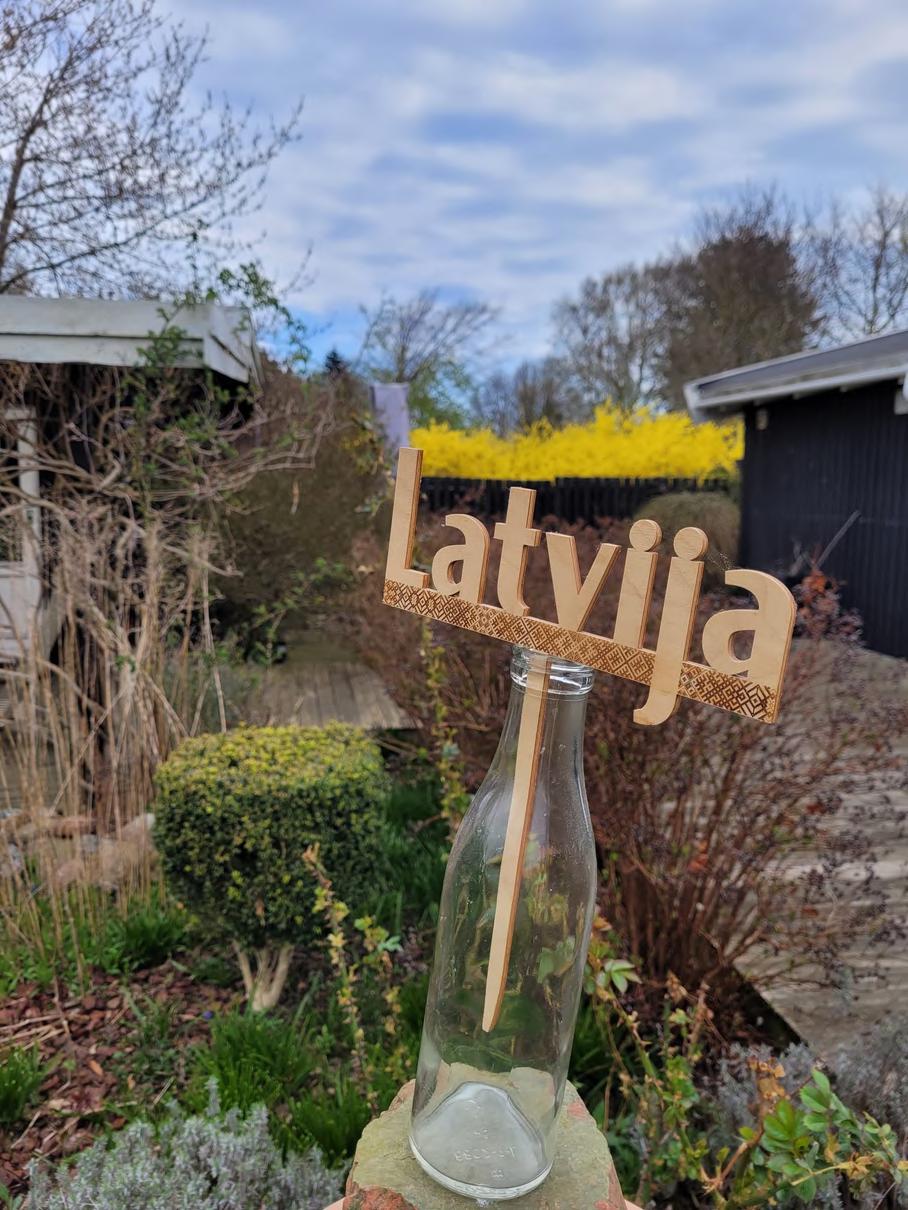
This picture is from my summer house in Denmark but I like to think of it as my own little Latvia...


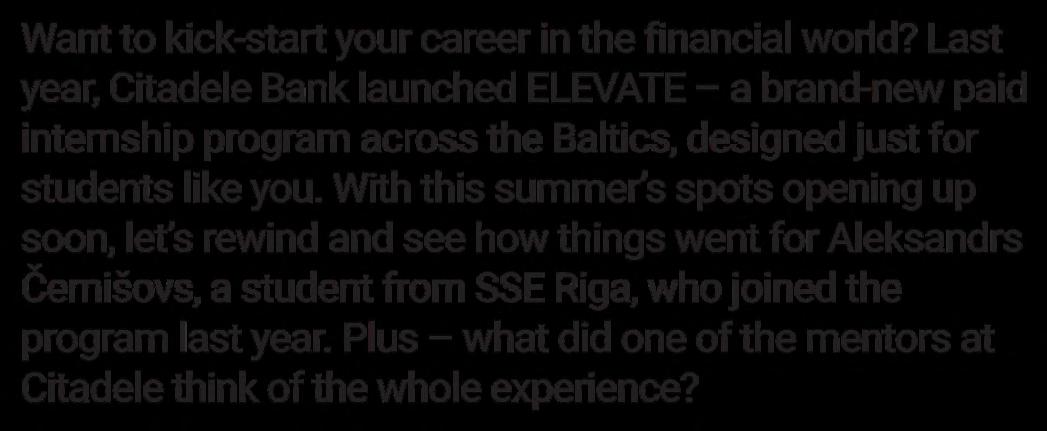



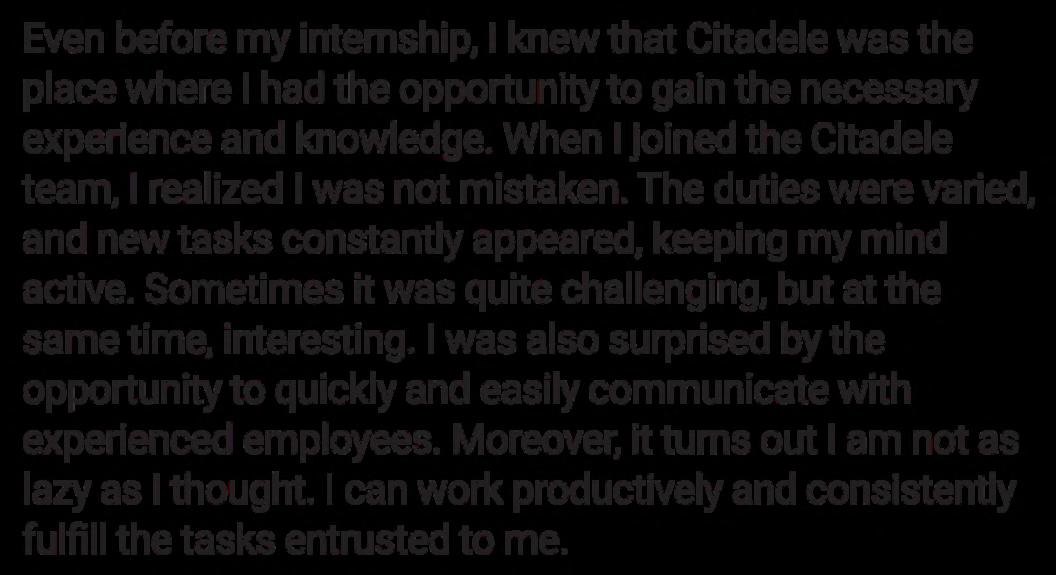

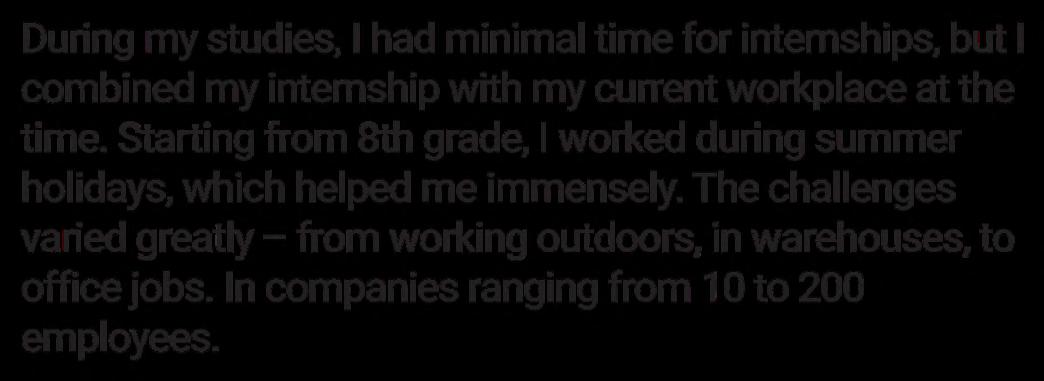
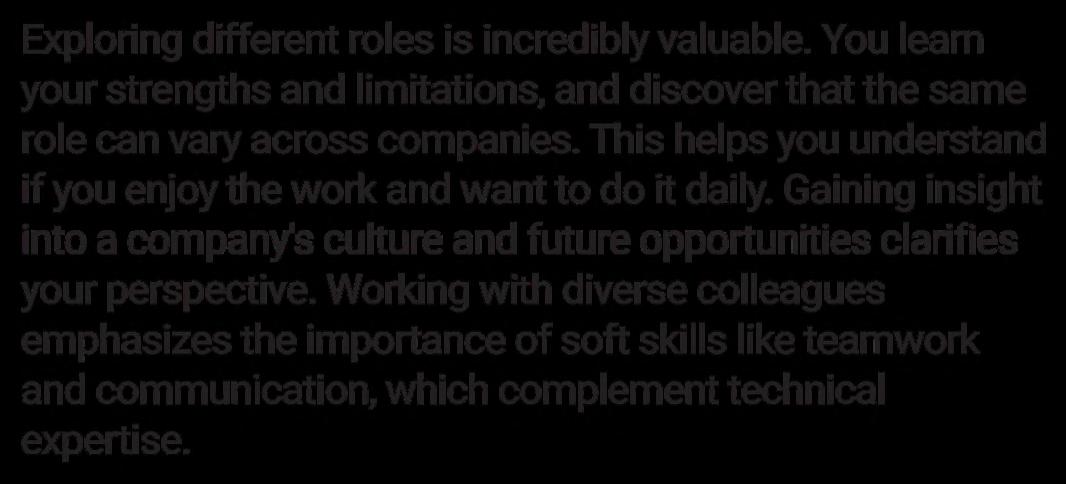




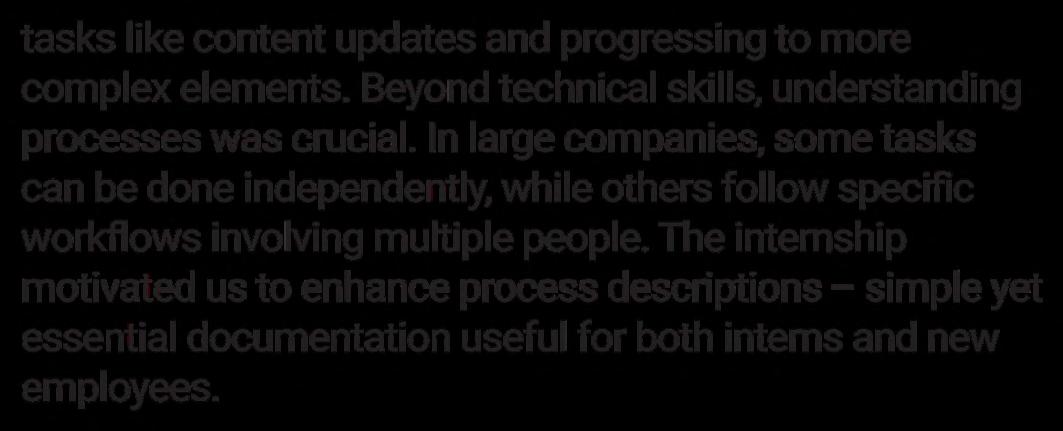

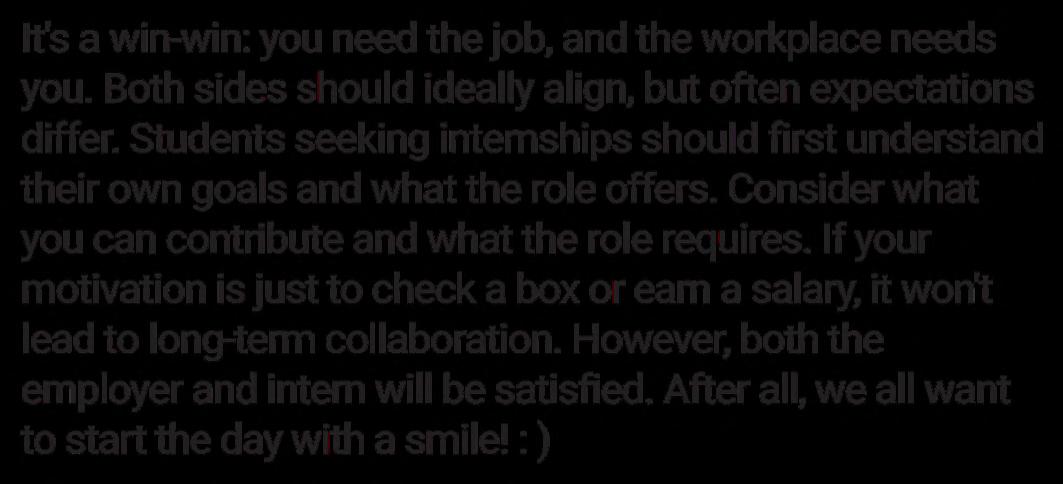

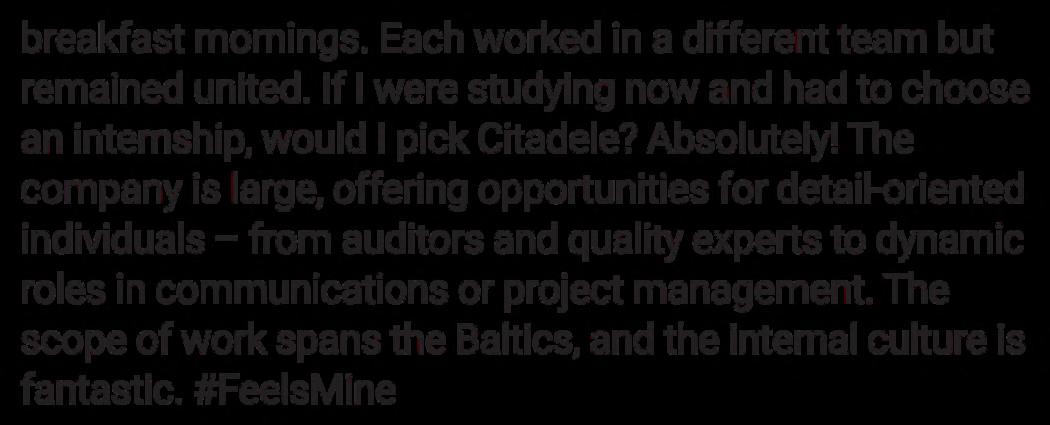



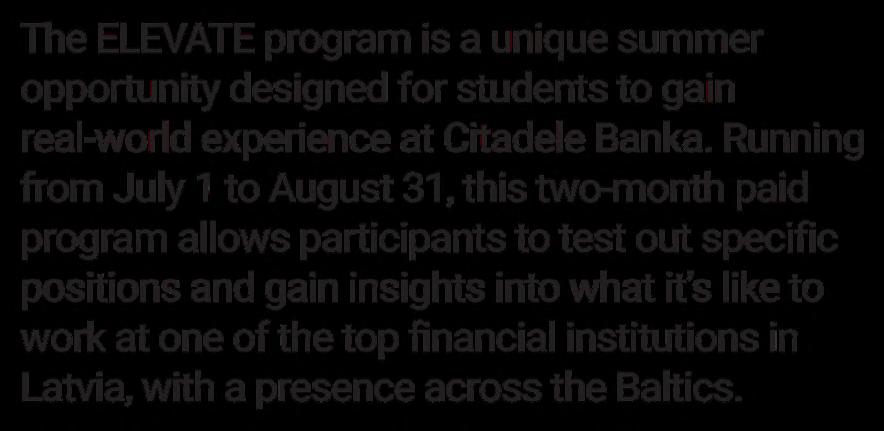




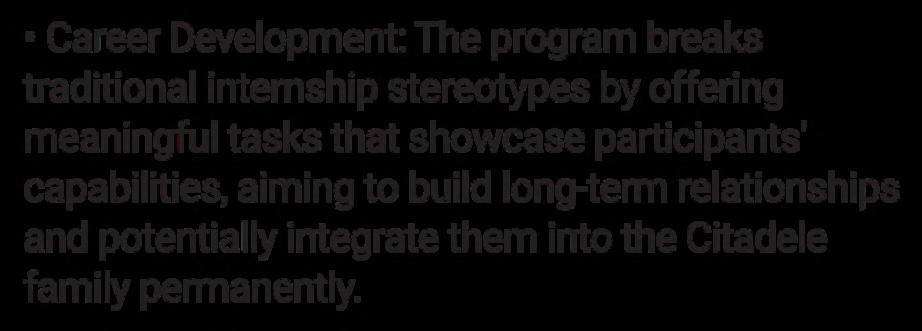


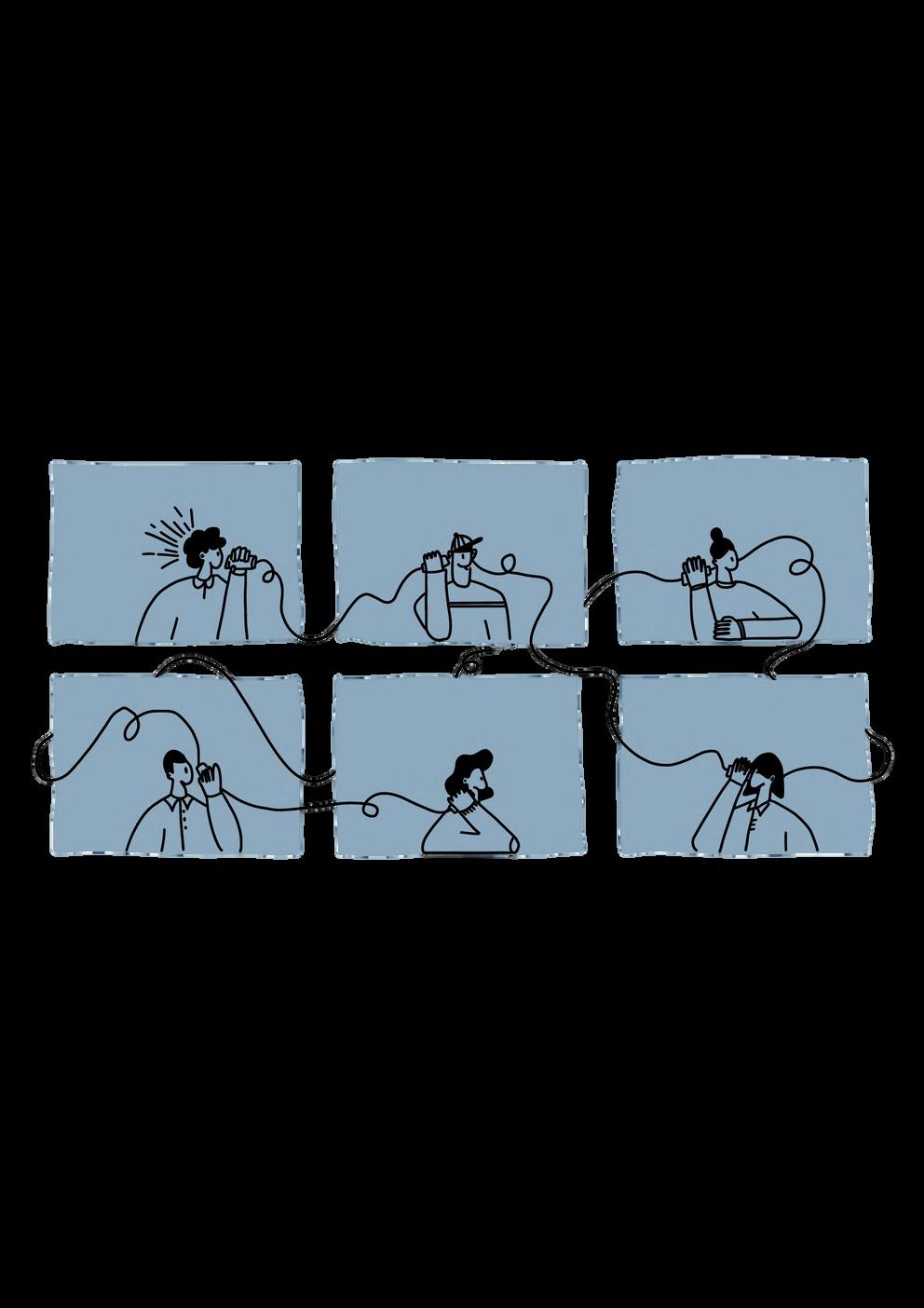
Meet the mentors of 2025
Since February the Alumni Committee in cooperation with the Alumni Association has launched the Mentorship Program, and for this Insider issue we wanted to tell you more about some of the mentors that applied this year

What are your plans for summer? For Uldis it will be a busy time as he is the director of the Summer Sound festival for which he recently was awarded as the event producer of the year. Uldis is also a partner of Palladium Riga , co-owner of I Love You Records, and previously he was the co-owner of Mobilly Who said that SSE Riga is only about finance?
Uldis Pabērzis '96
At a young age Lauris found a passion for the world of business and finance, and today is the CEO of Swedbank Latvia His career at Swedbank started in 2001 as a Client Executive in Corporate Banking. After climbing up the corporate ladder and being a head of many departments, in 2022 he started leading the largest bank in Latvia

Lauris Mencis ' 97

You might have heard about brands like Pols, Tio, Lakto, Ekselence, Rasēns and of course Kārums. All these brands are a part of the Food Union and Artūrs is the CEO. Over the years Artūrs has held high positions in various FMCG companies, but since 2022 Artūrs is leading the company and making sure that we can still find the goods that all know and love
Artūrs Čirjevskis ' 09
At KPMG Latvia 4 out of 5 partners are SSE Riga Alumni and Armine is one of them. Not only that - she is the Managing Partner. Armine started to work at KPMG while being a year 3 student , and in only 8 years managed to become a partner.

These are the people you’ve most likely seen and heard about in every second conversation about our community. They need no introduction their names carry weight, and their faces speak for themselves. And if you're bold enough, you might just become their mentee and get to know them personally




HY MARKETS REACTED
SO STRONGLY TO Tariff Hikes

Markets reacted strongly to the recent tariff announcements, and it wasn’t just about the tariffs themselves – it was about everything they brought with them. One of the biggest reasons for the drop was uncertainty. Financial markets really don’t like unpredictability, and tariffs added a lot of it.
Suddenly, investors were facing a bunch of new questions: Would other countries strike back with their own tariffs? Could these taxes spread to other industries? What would the Federal Reserve do in response?
All this uncertainty made people nervous, leading to a sharp sell-off. The S&P 500 dropped almost 10% in just one week, and other major markets in Europe and Asia also saw big declines. It wasn’t only the economic effects of the tariffs that frightened the investors it was the fear of not knowing what could happen next
Another major issue was how tariffs disrupted global supply chains. These days, most products are made with parts from different countries. Cars, electronics, and other goods rely on a complex system where parts come from all over the world.
The new tariffs acted like a tax on this whole system, making imported materials, especially from China and Southeast Asia, more expensive
That hit company profits right away, especially in industries like auto and tech. Since earnings forecasts are a big part of what drives stock prices, markets reacted negatively.
According to CNN Business, the OECD (Organisation for Economic Co-operation and Development) even predicted slower U.S.
GDP growth this year, down to 2.2%, largely because of supply issues and rising costs.





Tariffs also raised concerns about inflation. When it costs more to bring goods into the country, companies either have to take the hit themselves or raise prices for consumers. If they raise prices, it leads to inflation, which can reduce people’s buying power and hurt the economy overall. Investors were worried that rising inflation would cause the Federal Reserve to raise interest rates. If that happens, borrowing becomes more expensive, which could further hurt company profits and reduce consumer spending. The OECD now expects inflation to hit 2.8% in 2025, which is higher than previous estimates




Then came the fear of retaliation. After the U.S. imposed its tariffs, countries like China and Canada responded with their own. China targeted American agricultural products, while Canada slapped a 100% tariff on Chinese electric vehicles and taxed Chinese steel and aluminum. This kind of backand-forth is often called a “trade war,” and history shows that trade wars can slow down global economic growth. The World Bank warned that this situation could cut global GDP growth by 0.3 percentage points this year Trade wars are also linked to past recessions, like during the 1930s and the more recent 2018–2019 U.S.–China tensions.


Lastly, business leaders themselves seem pretty worried. Larry Fink, the CEO of BlackRock, told The New York Post that many CEOs already think we’re in a recession. A CNBC survey showed that nearly 70% of top executives expect a downturn before the end of the year When corporate leaders start holding back on hiring, delaying projects, or cutting costs, it sends a bad signal to the market. Investors pick up on that and assume earnings will fall and growth will slow, which pushes stocks down even more.



Overall, the market didn’t just react to the tariffs they reacted to what those tariffs represented: higher costs, slower growth, and a more uncertain economic future.
Article by Vykintas Bazyss
Design by Lenija Liepina





COULD BE AN EFFECTIVE INFL ATION HEDGE AMID TRUMP'S ECONOMIC REFORMS?

On April 2, 2025, Trump announced “Liberation Day” and introduced so-called “reciprocal” tariffs on more than 60 of the world’s economies, citing the U S ’s trade deficits with these states and emphasizing the supposed trade barriers that boxed out American goods from the affected countries’ economies.
Even though the tariffs applied have been widely criticised as inconsistent and calculated in a superficial manner, the initial impact seen in the stock market caused a 3 5% decrease in the S&P 500 and a 4.4% decrease in the Nasdaq 100, with stock markets continuing to plummet further.
Despite the 90-day partial suspension of tariffs on all countries except China being announced on April 9, the stock market has not yet fully recovered
The “Liberation Day” tariffs are likely to affect the inflation rate not only in the U S but also globally, as countries now have to evaluate their supply chains and trade partners while the United States begins to pursue isolationist policies that limit free trade.
This is where gold comes in. Gold has always been considered an inflation hedge, but in recent times, its value has reached an all-time high.


However, the EUR/USD exchange rate reaching a three-year peak is fueling speculation about a potential shift in the dollar’s role in the future
As a result, investors are turning to the rare-earth metal, with gold futures reaching a never-before-seen high on the Commodity Exchange (COMEX).

Usually, during times of uncertainty, the U S dollar and U.S. Treasury bonds are considered the go-to assets to hold. In general, they are stable and reliable especially the U.S. dollar, which remains the primary reserve currency in the global economy.
Gold, as an inflation hedge, is often viewed as a way to preserve purchasing power when the U S dollar decreases in value
What sets gold apart from other inflation hedges is its historical significance and well-established role as a store of value.


It is well known that the U.S. dollar was fixed to the price of gold until the 1970s, which has given gold a reputation that is hard to match. Additionally, unlike money, gold cannot be printed at will by central banks, as it has a natural quantitative limit only a finite amount of it exists on the planet
The U.S. has rarely experienced a presidential administration like the current one. Due to its unorthodox and erratic economic policies, the U.S. dollar’s reputation as a safe and reputable asset has been called into question, potentially leading to a permanently lower valuation of the currency. This has had a significant impact on gold prices on the COMEX
Since gold is typically seen as having an inverse relationship with fiat currencies, a sustained decline in the value of the U.S. dollar could result in a long-term increase in the valuation of the rare-earth metal. This would be unprecedented, as gold has traditionally been considered a less attractive investment compared to U.S. Treasury bonds and the dollar due to its volatility. However, as mentioned earlier, that perception is beginning to shift




The “Liberation Day” tariffs not only contributed to the decline in the dollar’s value but also triggered a nosedive in the American stock market. Typically, there is an inverse correlation between these two things when the stock market drops, investors tend to flock to safer assets, increasing demand for the U.S. dollar. Such fundamental discrepancies are leading people to fear a possible onset of stagflation in the US


Stagflation, as the name suggests, is the simultaneous occurrence of both economic stagnation and inflation It is particularly difficult to combat because the traditional tools used to reduce inflation or stimulate economic growth are often ineffective in this scenario.
In a situation where stagflation becomes prevalent, gold would serve as an effective inflation hedge. If the U.S. dollar continues to decline in value, gold may solidify its position as the preferred safe-haven asset one that can be relied upon to help mitigate potential decreases in purchasing power
To conclude, the current global economic situation is very turbulent and unpredictable. However, the current trends indicate that gold may continue to gain popularity as the US global economic hegemony may be starting to come to an end. Gold’s reputation as a safe-haven asset, along with its historical significance, positions the rare-earth metal as the inflation hedge of choice for many investors


Article by Kristaps Julijs Jaspers Design by Lenija Liepina

Th e Rise WHow Becam e a Asset Cla
had moved well into luxury territory. Still, a few people in the '80s or '90s were buying a watch thinking, "This will outperform the S&P 500." That didn’t really happen until recently

Once upon a time, watches were just about telling time You wore one to work, took it off at night, maybe passed it down to your kids. But somewhere along the way, wristwatches became investments. Not just “nice things to have,” but portfolio-worthy assets So, how did we get here?
The first wristwatches were more about function than fashion. In the early 1900s, they were mostly
worn by women, while men preferred pocket watches
But after World War I, when soldiers needed to keep track of time hands-free, the wristwatch caught on as a practical tool Fast forward a few decades, and watches started becoming
Around 2015, the luxury watch market began to shift A combination of social media, scarcity, and hype brought attention to specific models, especially steel sports watches like the Rolex
Unlike stocks or real estate, watches don’t generate cash flow. They don’t pay dividends or rent. So why are they catching investor attention?









symbols. By the time brands like Rolex, Patek Philippe, and Audemars Piguet were gracing the wrists of movie stars and world leaders, watches
Daytona or Patek Philippe Nautilus. Suddenly, it wasn’t just collectors and enthusiasts buying watches It was resellers, flippers, and even investors A limitededition watch released at retail for $10,000 could be flipped the next day for $30,000 or more.
And the numbers started turning heads A Rolex Daytona 116500LN, released in 2016 for around 12,000, was selling on the secondary market for over $40,000 at its peak. The Patek Philippe Nautilus 5711, famously hard to get even at its





$30,000 retail price, soared above $100,000 after being discontinued in 2021. Some vintage watches like a Paul Newman Daytona, have sold at auction for over $17 million Yes million
They offer a unique mix of factors that appeal to today’s collectors
First, there’s scarcity The most sought-after models are made in limited quantities, and brands like Rolex carefully control supply. Second, there’s tangible value A luxury watch is a physical object you can wear and enjoy, unlike a stock certificate or a crypto wallet. Third, the market is fueled by passion. People love watches. They follow brands, chase grails, and are willing to pay top dollar for the right piece And finally, thanks to platforms like Chrono24, WatchBox, and Hodinkee, there’s global liquidity. You can sell a watch to someone halfway across the world with just a few clicks But it’s not all glitz and gains

ging your house mportant to
acknowledge the risks The watch market, like any hot sector, can be volatile. Prices fluctuate, trends change, and there's always a chance you overpay chasing hype After the explosive highs of 2021, the market corrected sharply in 2022 and 2023, with some models dropping 30 to 50 % in value. There’s also the issue of counterfeits some fakes are so good, even experts get fooled And while online platforms make buying and selling easier, there’s no guarantee you’ll get your asking price.
So while a watch can be an investment, it probably shouldn’t be your only one For watch lovers, buying a timepiece that holds or grows in value is a sweet bonus. But the smartest approach is to think of luxury watches like fine art, vintage cars, or rare wine: niche, tangible, and best used to diversify a broader investment strategy. Buy what you love, learn what you can, and if the market rewards you down the road? Even better
Article
by Everts Design by Ieva G


At the end of the day, while stocks may rise and fall, a great watch is always… well,
Timeless .










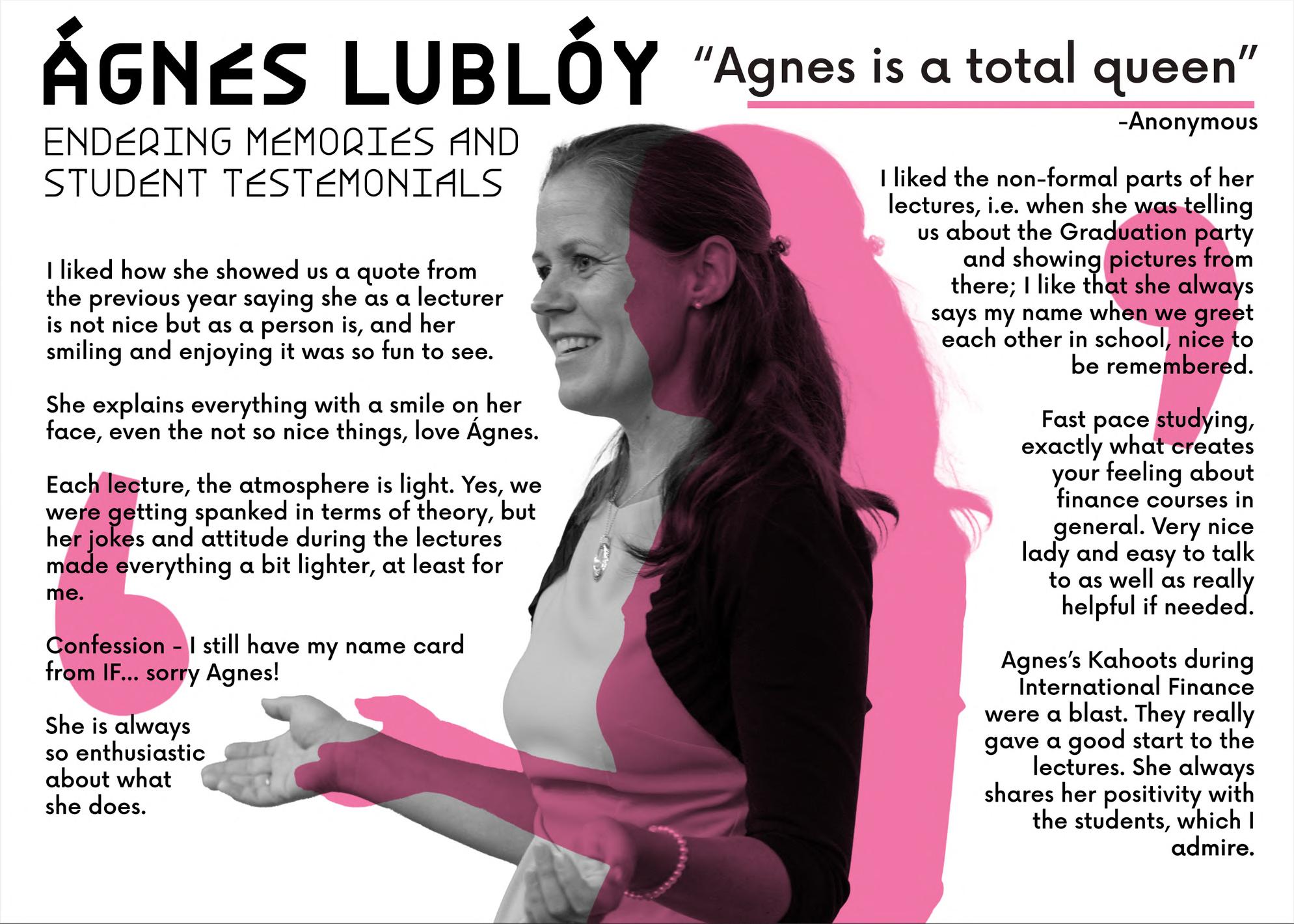











INSIDER SPECIAL with KARLIS ZENNE
Please introduce yourself and your background at SSE Riga.
Hi, I’m Kārlis Zenne Technically, I was supposed to graduate with the class of 2015… but I left during my third year, so I guess you could say I’m a proud SSE Riga dropout While I was still around, I got involved with the Entrepreneurship Suppor t Centre star ted out as a volunteer and eventually became the coordinator there. Meaning I was par t of the school staff while being a student Besides organizing events like Garage48, Global Entrepreneurship Week, and the Youth Entrepreneurship Summer School, I also spent time mentoring and consulting young entrepreneurs on their business ideas
You are a member of Singapūras Satīns, how did that happen?
After I left SSE Riga, I decided I wanted to be around people who motivated me. One friend introduced me to another, then another, and eventually I found myself in a group of people who were all talented in different ways Each with their own passion project or crazy idea. At some point, my friend Jānis asked if I wanted to join a rap group Since I hadn’t rapped before figured I didn’t have much to lose if I tried … and well, here we are

How was student life at SSE Riga 10 years ago? Any favourite memories or SA and organization activities?
Honestly, it was something special We were a super tightknit bunch, and that ’ s one of the things I’ve always appreciated about SSE My favourite stor y actually comes from my internship I was put in charge of organizing a pop-up event during Piens Fest at Stricka Square, and we had this brilliant idea to set up a skimboard pool Ever ything was going great until we realized there wasn’t enough water pressure when tr ying to fill it up from Piens (which is Skapis now) At SSER, we were always told that “there’s no problem that can’t be solved,” so we took that to hear t. A quick drive to the local fire station, a casual 20- euro offer to a group of off-duty firefighters, and next thing you know they’re filling up the pool and even closed down the street to do it. It was a total success… until we lost electricity and accidentally flooded the nearby kids’ playground But hey, it ’ s all par t of the learning process, right?
Are you still active with the group or have you moved away to other activities?

Yeah, I’m still ver y much involved both as an ar tist and as the band’s manager The project has grown way beyond what I ever expected, but it's also opened up a lot of space for creativity I’ve had the chance to dive into songwriting, creative direction, music video production you name it. And on top of that, it ’ s been a blast collaborating with different ar tists and brands coming up with ideas that would probably never fly in the usual corporate world.
Head of strategy @ !Mooz & golin riga
You are clearly a creative person, alongside Singapūras Satīns, you also are active in adver tising. How did you decide to go into this field after studying at SSE Riga? What sparked your interest?
I remember a lot of my classmates were aiming for careers in consulting
For a while, I also had this dream of working at McKinsey—until I realized I’m just not a suit-and-tie kind of guy.
So I star ted exploring other paths Luckily, Kristaps Siliņš noticed me at one of the SSE Riga entrepreneurship events and introduced me to the world of marketing and adver tising. It turned out to be a great fit it mixed the structured, analytical side of consulting with the creative side of my personality Pretty much the per fect middle ground between corporate and creative.
Why brand strategy? Why not become a creative or an account director?
Right after dropping out, I took a job as an account manager at a small ad agency mostly because I didn’t really know how all the roles in adver tising worked yet. My SSE Riga background definitely helped me land on my feet. After about six months of seeing how ever ything operated, I realized strategy was the best fit for me Let ’ s just say there’s always something new to learn. New industries to dive into, new client challenges to tackle it ’ s never a dull day And the creative side keeps things exciting Working closely with creatives, you get to see your ideas grow into something real and tangible That mix is what makes it all so rewarding.
Has there been a funny and memorable event in your career in marketing? Or something shocking that has had an impact on you?
Most of the funny stories probably belong in a bar over a beer so if you ever bump into me, feel free to ask! As for something more eye-opening, I’d say one of the most memorable experiences was during my first training trip to London. That gave me a real look into what it ’ s like working at a massive agency It was a bit of a shock I remember that there was a guy whose entire job is writing copy for ketchup. That trip really made me appreciate working in smaller, boutique companies here in Latvia You get to wear different hats, explore new things, and not get stuck in one narrow lane
Last question, if there is one piece of advice you would give to our students now, what would it be? My advice is for anyone who ever feels like they don’t quite fit the mold don’t stress it Focus on finding your people, your crew, the ones who get you. Because with the right crew, even your wildest ideas can turn into something real Trust me one minute you ’ re talking business plans, the next you ’ re in a rap group. Life’s weird like that
...Roll with it.



Interview by Kārlis Aleksandrs Strante Design by Eduards Skudra
U P C I V I L I Z
Civilisation is a loaded word. It implies a line, drawn, sometimes faint, often bold, between those who have it and those who don’t. It ’ s a way to sor t the world into neat hierarchies: the advanced and the backward, the enlightened and the uncultured Civilisation, in practice, has less to do with ar t and philosophy and more to do with plumbing, public image, and who gets to decide what counts as ‘normal’. Civilisation is a silky web of behaviours, beliefs, rituals, rules (unwritten, of course), and expectations so deeply ingrained they become invisible, until someone does it ‘ wrong ’ Which makes it, from my point of view, absolutely irresistible
I have spent the past few years obser ving such a civilisation A tribe nestled in the almost nor thernmost tip of Europe. As I write, it ’ s April and 1 degree Celsius The Nor th nor th. It is an urban tribe, numbering around 500 members, give or take the occasional exchange or defection. This piece offers one of the first, but cer tainly not final, accounts of ethnographic nature into their curious customs, rich rituals, and occasional chaos.
Each year, roughly 150 new initiates are welcomed into the tribe through a carefully choreographed process Turner would call this the liminal phase, that glorious, beer and sweat-covered inbetween where no one quite belongs anywhere, rules are delightfully suspended, and red plastic cups and minor identity crises bind people into something he’d call communitas, though the tribe just calls it “ summer symposium ” This is followed by a period of intense instruction in the tribe’s ways, often delivered through sessions bearing four-
letter codes so cr yptic they verge on the mystical. Turing could not crack it. CTAS? Integration is suppor ted through smaller collectives organised by interest The largest, and perhaps most gossip-loaded, is in charge of organising regular gatherings of a celebrator y nature. These often feature loud music, dancing under flickering disco balls, and mysterious beverages in disposable cups and champagne glasses These gatherings are drenched in glitter and the scent of transgression. Sequins fall off onto sticky floors that will take hours to clean Someone’s eyeliner has migrated halfway down their cheek On purpose
The tribe excels in ritual celebration, which is perhaps the most sacred of their practices. These events allow members to cast off ever yday roles Transgression is not only permitted but expected. Lavatories are blocked. Sinks are broken. Acts of public affection (towards self and others) abound. Dancing on tables is practically a rite The scent of sweat, peachy vape and spilt alcohol hangs in the air like incense Such events are, by tradition, closed to outsiders. Durkheim would call it collective effer vescence, a fizzy, glitter-drenched state where the bass drops, identities blur, and total strangers hug like long-lost cousins in what is, technically, a canteen and lobby.
But recently, word spread of a gathering that included members of a neighbouring tribe. Some say it was to foster inter-tribal solidarity. Others point fingers at rogue elders The result was spectacular, in both good and catastrophic ways, leaving behind physical debris and emotional confusion.
C L O S B Y K A T A F R E D H E I M
A T I O N S E
Did it unite the tribes or deepen their rift? It depends on whom you ask What is clear is that such events are oppor tunities to explore the limits of deviance Themed evenings such as “Nine Circles of Hell” and “Halloween” suggest an ongoing interest in the dark side of civilisation
Leadership in the tribe is handled by a rotating circle of 19-year-old elders, elected annually. These elders are responsible for guiding the tribe, enter taining it, and forming strategic alliances, often with providers of chocolate, carrots and alcohol. The election period is a spectacle in itself.
Clifford Geer tz might have recognised the election rituals instantly. A theatre of power where speeches, slogans, and strategic campaigning replace cockfighting, though the stakes feel just as absurdly high and just as deeply symbolic. When new elders assume their roles, a ceremonial transfer of power takes place, often marked by the symbolic removal of clothing This act, far from scandalous, signifies vulnerability, transparency, and commitment to the collective good
Seventeen moons after initiation, a fearsome rite awaits. Known by a name too terrifying to mention, it involves a two-month-long academic ordeal requiring up to 16 hours of daily study. Members forsake ordinar y life Showers are missed. Meals are replaced by snacks in plastic wrap.
Social interaction is limited to competitive miser y Interacting with non-stressed people is seen as a waste of time. The
academic trial is a classic Foucauldian moment of institutional control, where selfregulation, sur veillance, and judgement intersect The climax is a 90-minute written trial, after which par ticipants consume a clear, purifying liquid to cleanse the soul and celebrate sur vival. It is widely believed to be a local form of holy water Tribeshumans describe it ’ s taste like regret and freedom. For many, this rite also signals the beginning of the end of full tribal membership. Long after they’ve left, alumni still whisper about the ordeal as if it were both trauma and badge of honour.
But the most moving moment comes later. Graduation marks the transition from tribal life to the wider world, but with per formance and collective catharsis. Friends and family gather to honour the tribe’s depar ting members. It is half blessing, half runway show Each member struts, cloaked in elaborate robes, teetering on heels higher than skyscrapers, across a stage as elders look on, holding their collective breath. No one wants a tumble The air is thick with the smell of flowers and pride. It is theatrical, touching, absurd, and deeply human We applaud We cr y We cheer For in that moment, civilisation, in all its strange glor y, makes per fect sense And we are proud of you.
This, this, is what civilisation always looks like up close. A bit chaotic, often sticky, but absolutely full of meaning. And champagne stains.

Article by Gunta Kroiča, design by Kristiāna Labanovska
WHEN HERD MENTALITY TAKES OVER: Third Wave Experim ent
Have you ever looked at a group of people and wondered, 'How can they be like this? How can they support or ignore what’s happening in their country, city, or community?'
In a world where social media, political movements and everyday group dynamics play on our need for validation, control and acceptance, many people become easily susceptible to manipulation. Yet, there's a widespread belief that 'I wouldn’t fall for such a trap.' However, a social experiment conducted by high school teacher Ron Jones reveals just how naïve this assumption can be.
“I WOULDN'T FALL FOR SUCH A TRAP”
Ron Jones was a history teacher at Cubberley High School in Palo Alto, California. In April of 1967, Jones was giving a lesson on Nazi Germany to a class of about thirty 15-year-olds when a student interrupted him, asking how the German people could claim ignorance to the Holocaust.

The student was perplexed about the idea that rational and educated people who possibly had Jewish friends or neighbours could turn a blind eye to the extreme racism, concentration camps and the slaughter of millions of innocent people. Unable to provide a comprehensive explanation, Jones left the student with no answer. Instead, he decided to dedicate the following week to exploring this issue.

Strength through disc ipline
Under Hitler’s reign, discipline was an essential tool in maintaining the oppressive regime through order, obedience and control. On Monday, Ron Jones explained to his students that discipline is the path to ultimate triumph. To showcase the power of discipline, Jones commanded the whole class to exercise a proper seating position, reprimanding and correcting those that wouldn’t maintain proper form.
He also introduced some rules regarding punctuality, note-taking, class participation and responding to questions. Students were made to repeatedly practice these guidelines, until everyone abided by the new set of rules.

Jones was surprised as to how responsive students were to his authoritarian behavior. The lesson was more organized and productive, and more students were actively participating in the class discussions; it seemed that conformity was a natural instinct. In fact, the result was so positive that Jones questioned the legitimacy of open classroom principles and self-directed learning.
Strength through communit y
entered the xt morning, he y of the class ntively awaiting of the lesson. was already her to continue he began nts on the mmunity and the es from being a ent, a team, a experience the ommunity, the a couple of up and repeat rength through trength through
Soon, other students joined in until the whole class was chanting the mottos. As Jones described it, ‘’the students began to look at each other and sense the power of belonging. Everyone was capable and equal. They were doing something together.’’
During this lesson Jones also created the Third Wave salute, made by bringing the right hand to the right shoulder in a curled position. Students used this sign of recognition within and outside the classroom to signify their belonging to the movement. This peculiar gesture attracted attention, and soon other people began to join the lessons.
Strength through ac tion

The Wednesday lesson began with 43 people in the classroom. In the next stage of what Jones referred to as an experiment, he explained to his pupils how discipline and community were meaningless without action It was everybody’s responsibility to do what’s necessary to preserve, protect and support each other. In this classroom, instead of competing against each other, they would contribute to the success of the group as a whole.
Students were given several tasks to complete: create banners, recruit new participants, learn each member’s name and address, report students that didn’t obey the class rules. The last assignment was particularly popular, and Jones received more than twenty reports about students not performing the salutation or talking critically about the experiment It was surprising how easily students snitched on each other.
The movement started to gain traction, as teachers, school faculty and technical staff became interested in what was going on in Jones’ history class A concerned parent even contacted Jones, but a bit of comforting was enough to convince this person that what was taking place was completely safe and appropriate To Jones, this proved how different history could have been if people were angrier, more insistent and proactively investigated suspicious situations Instead, they chose blissful ignorance and became accomplices.
By the end of this day, Ron Jones was exhausted by the experiment. The line between role play and dictatorial behaviour had become blurry, and Jones was worried about the lengths that students would go in the name of the Third Wave community He did, however, recognize some benefits. The lessons were more productive than ever, and outcasts had finally found their place in a group. Nevertheless, Jones believed that it was time to put an end to the experiment.
Strength through pride
By Thursday, more than 80 students had joined the class, but even then everyone was sitting silently with anticipation. Jones began talking about pride: ‘’Pride is more than banners or

Jones invited the whole class to join him the next day, when a candidate for president would announce the formation of a Third Wave youth program and the students would be asked to stand up and display their support and loyalty to the movement. Jones expected to be met with laughter and disillusionment; instead, students were excited and fired up by the news.

final tes t
As instructed, students, about 200 of them, showed up for the rally at 12:00 on Friday. Teenagers of different ages, interests and social ranks sat in uniform and, tense with anticipation, awaited the beginning of the national press conference To make the event seem more realistic, Jones had placed a TV in the middle of the classroom and several of his friends posed as reporters and photographers capturing this historical moment. After exchanging salutes and chanting the Third Wave mottos, Jones turned on the television and the screen lit up in a bright, phosphorus light. Minutes passed by, but no program started, and students grew more and more confused and upset.
The silence in the classroom was deafening Eventually, tears, anger, and confusion emerged, along with never-ending questions about the meaning of this experiment. Jones had proved that they were no better than the German Nazis. It was in human nature to crave belonging, a sense of importance and accomplishment. Out of fear of being left out or judged, they, too, would have put on the uniform.
At this point, Jones finally stood up and explained what was going on: ‘’There is no leader! There is no such thing as a national youth movement called the Third Wave You have been used. Manipulated. Shoved by your own desires into the place you now find yourself You are no better or worse than the German Nazis we have been studying.” Jones continued by turning on a screen projector which soon lit up with scenes from the history of the Third Reich, the Nuremberg Rally, violence, and the ghostly death camps. In the last frame was written: ‘’Everyone must accept the blame. No one can claim that they didn’t in some way take part.”
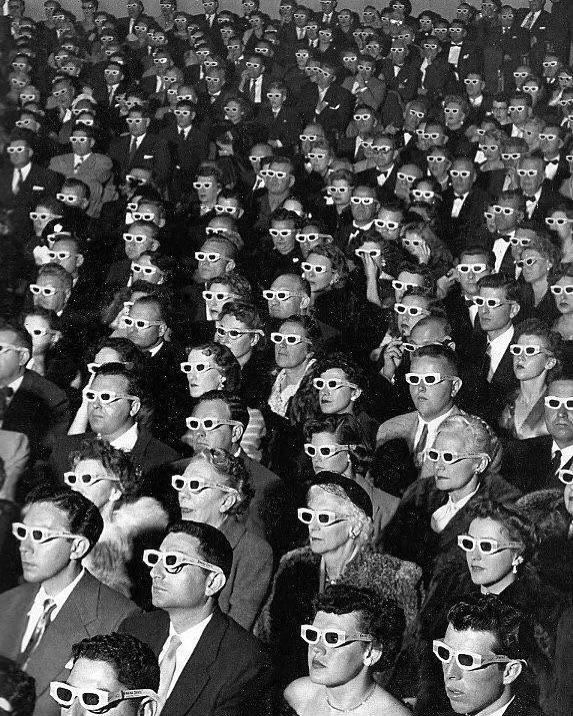
Finally, if they had been successful in recreating the Fascist mentality, Jones claimed that the students would struggle admitting that they came this far. That they would be ashamed to confess to their friends and family how easily they gave up their individuality Indeed, for the four years Ron Jones worked at Cumberley High School, no one ever spoke of the Third Wave movement It was a secret they all carried silently.
Nine years later, Ron Jones published a short story about the experiment, which was later developed into an ABC-TV movie ‘’The Wave’’ (1981). Other TV adaptations such as the German film ‘’Die Welle’’ (2008), the documentary ‘’Lesson Plan’’ (2010) and Netflix Germany miniseries ‘’We Are the Wave’’ (2019) followed later. The story serves as a reminder that we are not immune to our instincts and emotions. The desire to belong, to be seen and appreciated can lead a person astray, taking away their personal agency and morality, but critical thinking and a strong moral compass can help one resist manipulation, preserve individuality, and make ethical choices in the face of pressure.
Note from the author: the main source of this article was The Wave Home website, which was created by Mark Hancock, one of the Third Wave students. Hancock had dedicated his life to sharing his experience in the Third Wave experiment and promoting critical thinking.
















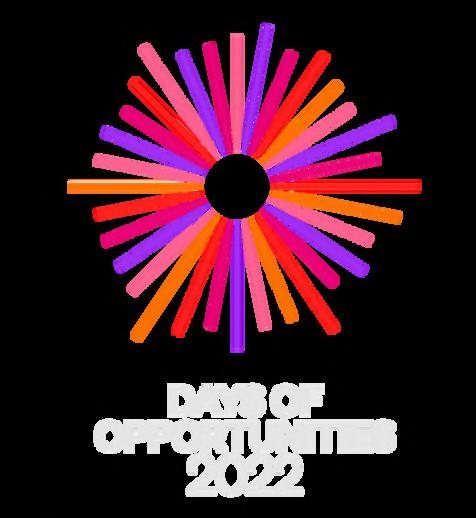
DAYS OF OPPORTUNITIES 2025
Dear SSE Rigans,
The 2025 Days of Opportunities has come to an end and what a ride it was! On the 28th of March, for the 29th time, we had the privilege of bringing together the top business and economics student s in the region SSE Rigans and the largest, most successful, impactful, and fun employers this region has to offer.
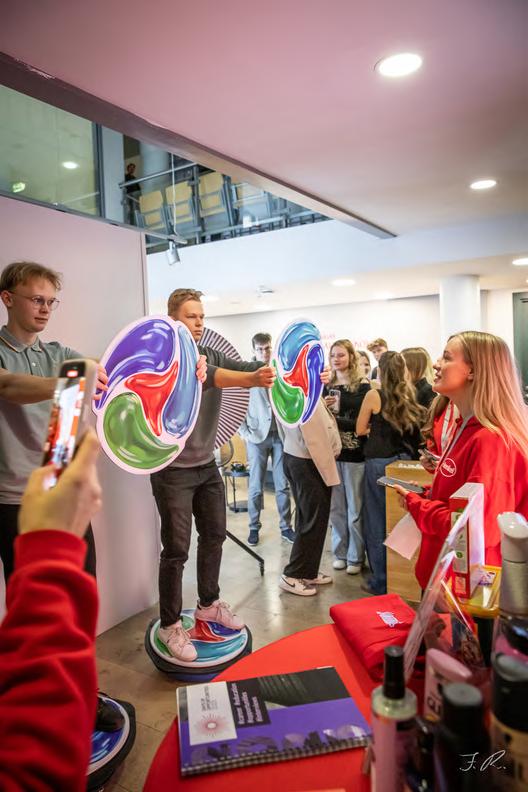
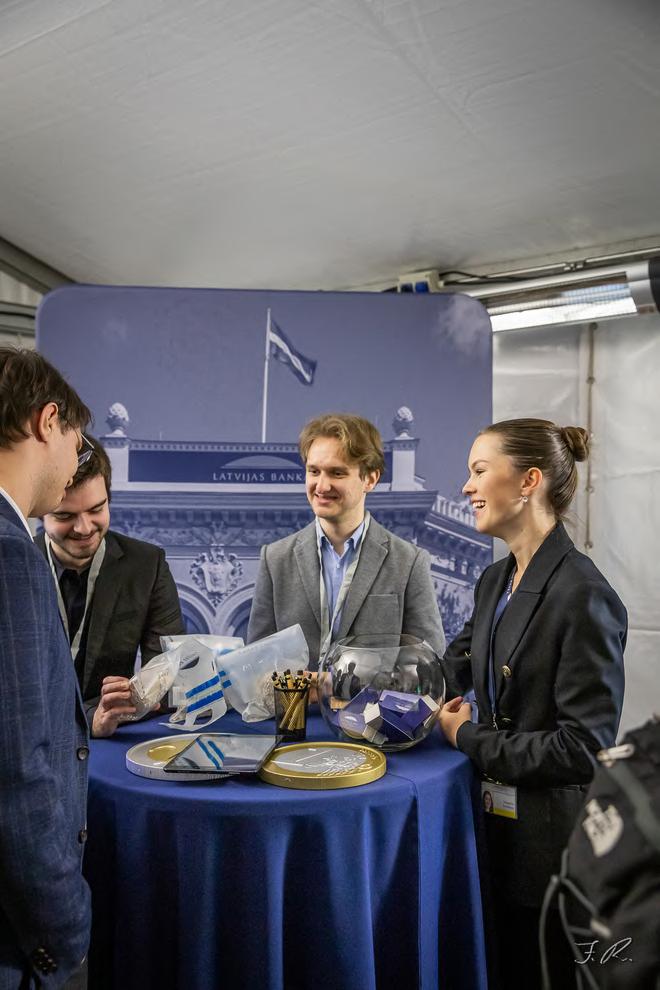
From financial juggernaut s such as Signet Bank, Luminor, and Deloitte, to major ret ailers like Rimi, Henkel, and Food Union, as well as prestigious Master’s programs from SSE, Vlerick, and Hanken student s had the chance to explore the full spectrum of postgraduation opportunities.

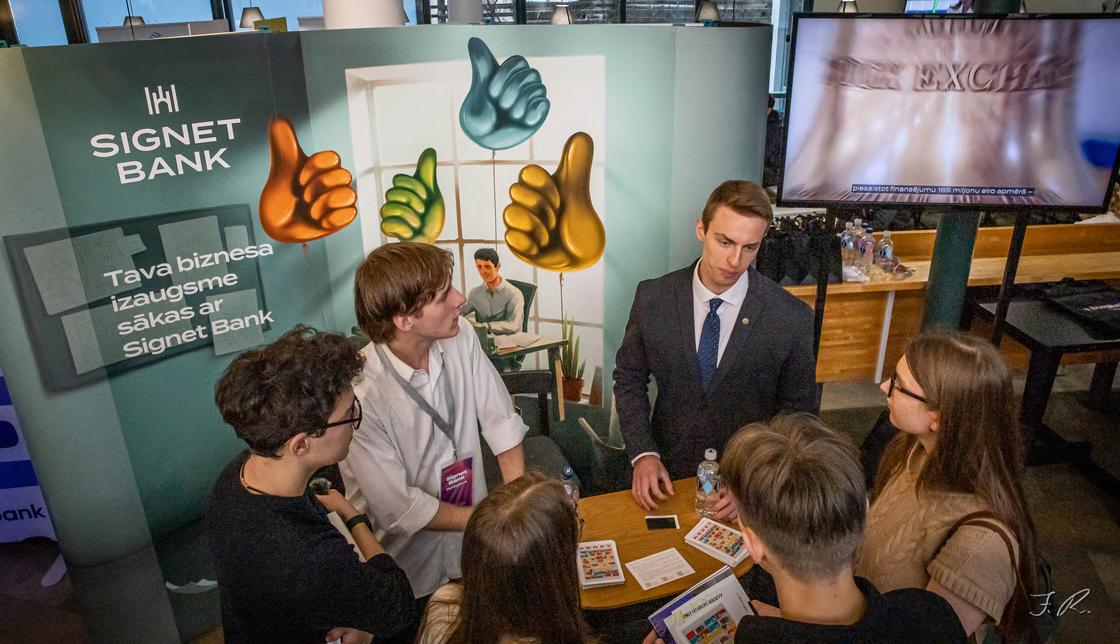
A massive thank you goes out to the ama zing Days of Opportunities 2025 Team

We hope the event has provided you with at least some clarity on where you’d like to pursue an internship, st art a full-fledged career, or continue your studies. See you next year for the 30th Anniversary!
Sincerely, Days of Opportunities 2025 from Country Coordinators, to Design and Media, and finally, to the Event Team.
An incredible effort was made to ensure our beloved SSE Rigans had a blast!




WHERE AT? you

Imagine uncovering a 5000-yearold family drama long-lost cousins, power ful matriarchs, and buried secrets all hidden beneath the ground. Thanks to groundbreaking research published by Science journal in their Breakthrough of the Year 2024, this is no longer just the stuff of imagination ful their of the no the imagination.




Scientists have discovered that ancient DNA the genetic material preser ved in old bones and teeth can do far more than just trace where people came from
Now, it's being used to piece together actual family trees from thousands of years ago! Think of it like ancient ancestr y com, but powered by cutting-edge science bones where Now, it ancestr powered science



This research became possible due to major advances in DNA extraction techniques and lower costs of analysis In the past, researchers focused on getting a broad picture of how populations moved or evolved But now, with thousands of ancient genomes available, they can zoom in on individual people and entire communities They’re uncovering family connections that stretch across cemeteries and even continents analysis. available, in people entire that


By comparing identical segments of genetic code, scientists can now detect family ties as distant as sixthdegree relatives. That ’ s like finding out two people buried 1500 kilometers apar t on the Eurasian steppe were actually cousins! of relatives. 1500 kilometers
But it doesn’t stop there
One especially striking case was the discover y of a man buried next to a horse in seventh-centur y Hungar y. Scientists used his DNA to trace a larger network of relatives buried in the same cemeter y. Not only did this give us a clearer picture of his family but it also suggested the community may have valued animals symbolically, perhaps connecting them with power or prestige That ’ s the kind of detail that would be nearly impossible to get from bones alone trace picture ne ly
We’re learning that people in the ancient world weren’t just nameless figures in dusty textbooks They had families, rivalries, social structures, and traditions And now, through DNA, we ’ re finally able to see those hidden layers of their lives. now, finally hidden lives.

By combining DNA data with archaeological details like where people were buried or their age at death researchers have mapped out family trees that go back up to eight generations These insights have revealed unexpected things about ancient societies For example, power ful Celtic leaders in Germany 2500 years ago inherited their status through their mothers, showing a matrilineal society. Meanwhile, Stone Age farmers seemed to favor the male line. at generations example, Celtic years inherited their through showing Meanwhile, Age

In another study, two women who lived over 40000 years ago in Europe one in the modern-day Czech Republic, the other in Bulgaria turned out to be par t of the same extended family. Their remains were found hundreds of kilometers apar t, but DNA tied them together. That ’ s a mindblowing level of long-distance connection for the Stone Age! 40000 par same were hundreds apar t, tied them That a of the
What makes this so exciting isn’t just the cool science it ’ s how human it all feels
The team at Science believes this is only the beginning. As more genomes are sequenced and new burial sites are studied, we ’ re likely to uncover even more surprising connections across time and geography.
The past is star ting to feel a lot more personal and a lot more alive alive
So next time you hear about archaeologists digging up bones, don’t just think about skulls and potter y shards Think about grandparents, cousins, and ancient family reunions Thanks to science (and a little help from our ancestors’ teeth), histor y is getting a whole lot more human histor
When Time Melts
No one has ever truly solved the labyrinth of time, though many have tried Aristotle, Newton, Einstein, and even more of histor y's greatest minds have been puzzled by this ordinar y yet highly unpredictable concept Daily, we want to slow it down so we can appreciate the limited nature of time, yet we often waste it, constantly postponing tasks with the hope of doing them tomorrow
All this fuss for something we c an't even control, quite ironic, isn’t it ?

To be clear, we can never pinpoint what the present is, which makes it difficult to define the past and the future However, there are three ways the present can be experienced: the past within the present, the present itself, and the future within the present
The first one is our memor y, which is highly subjective and often shaped by our personal interpretation or wishful thinking The second one is the present experienced in this exact moment, whereas the third is subject to our imagination and anticipation It may seem confusing at first, but perhaps the abstract nature of time is best captured through something equally abstract surrealism.
And if you’ve been waiting for an oppor tune moment to lose yourself in Salvador Dalí’s melting clocks tr ying to f igure out the details of the painting, well, this is it.
While there are not many objects in the picture itself, the main figures are the melting clocks, thought to represent time, par ticularly two different perceptions of it
We’re great at measuring time, the problem is that we are still far from understanding what it is we ’ re actually measuring
Sir Isaac Newton proposed the concept of so-called ideal time, meaning
it is universal, purely objective, and doe s not depend on human perception it’s absolute.
But to crush all our illusions of per fection, we must recognize that nothing truly ideal exists in our world. Ever ything depends on something, and so does the time. An hour with a good friend can pass in the blink of an eye, while five minutes spent in traffic can feel like forever Doesn’t this make our perception of time more relative rather than absolute?
And this is the ver y essence of the melting clocks time is a moving thing, slipping like sand through our hands The melting clock symbolizes a rejection of the notion that time is fixed or linear It suggests that the pas t, pre sent, and future are f luid, cons tantly shif ting, s tretching, and melting into one another.
The feeling of time passing is something our minds create It happens in the space between our memor y and our expectations of the future Since our minds are shaped by memor y and imagination, time helps us to make sense of the world
It’s le ss about clocks or the outside world and more about what’s happening in our heads, right now.
So is surrealism a state between reality and dreams, taking the best from both worlds.
Dalí’s painting is not just one of the most famous works of the 20th centur y, it is a revolutionar y and provocative message that challenges the timeregulated society we are living in

A quick word of caution: remember, in surrealism we are dealing with abstraction, a lot of irrationality, and a slight touch of the absurd, where reality blends with the imagination of an author It all sounds fine until we are faced with the reality we actually live in
Our lives have been, and likely always will be, ruled by time, no matter how surreal Dalí tried to make it seem But before we surrender to eternity and fall at the mercy of time, there is one incredibly power ful quality of it
you never know when time will f inally deliver re sults.
In our lives, time often becomes a source of fear. But the fear of time isn’t really about time itself, it's about the uncer tainty we face because of it.
So here is a trick, simple, but works like a charm.
We fear time bec ause we c an’t control it, if we measure it. If we don’t, we bliss fully ignore it.
If we come to accept that we are not bound by time, through a psychological understanding of it, we can free ourselves from seeing it as something oppressive or controlling
Does it matter how much time it takes for you to write a book or a work wor th a Nobel Prize?
What if we didn’t obsess over the clock or follow those socially accepted age milestones, like when you're 'supposed' to have cer tain things done
In fact, it doesn’t really matter when it happens, even if it ’ s much later than expected What truly matters is the realization of one’s life task; only after ward can we consider the role of time.
The actual amount of physical time spent doesn’t matter when it comes to fulfilling that purpose Eventually, when the ‘right time’ comes, it justifies the wait Or, how I usually get by, you could just follow the principles of the Knights of the French Order ‘Do what you should, and come what may. ’ In this case, time has no power over you.
‘Do what you should, and come what may.
In this c ase, time has no power over you. ’



Article by Aleksandra Kiopa Design by Katrīna Zingule



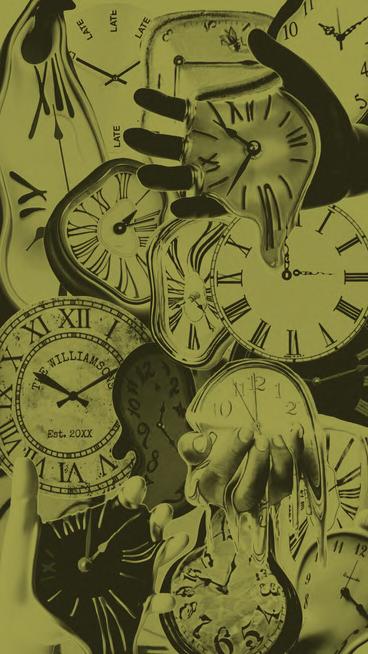




PLEASE, JUST LET PURGE US



“To night allows peo ple a release for all the hatred and vi olen ce that they keep up inside them.”






















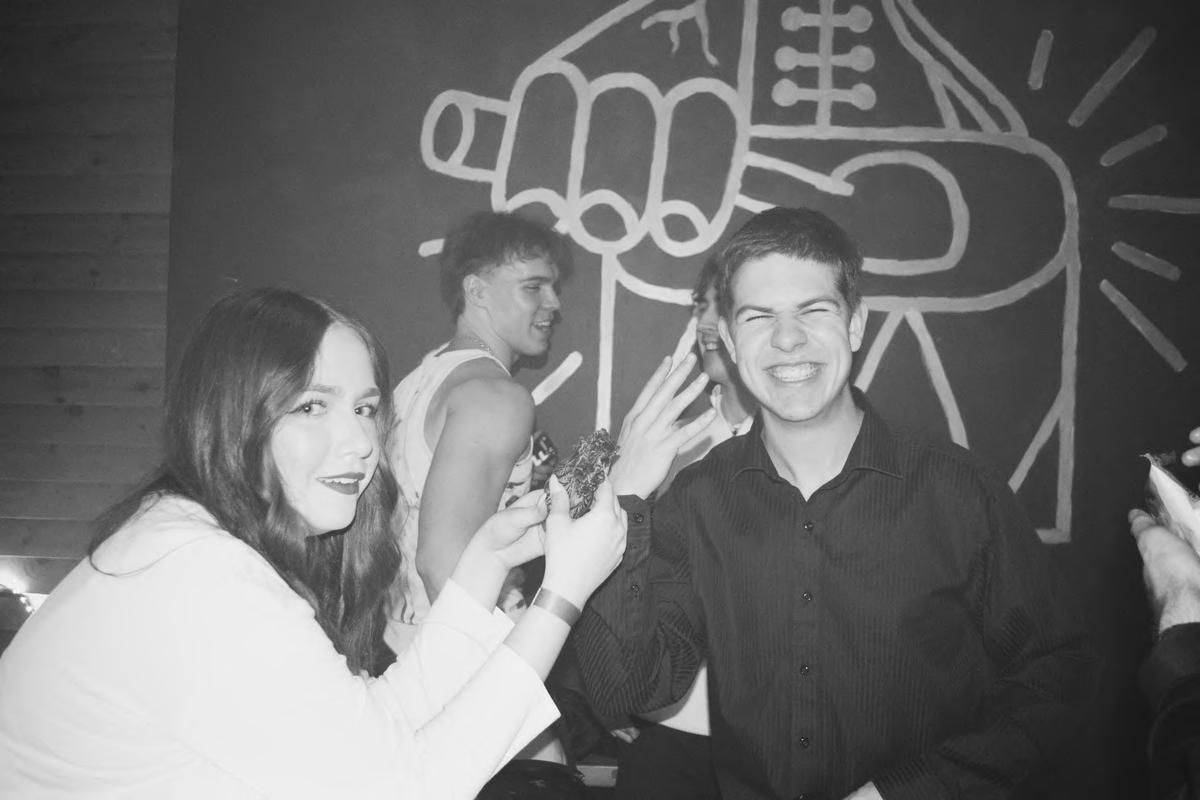















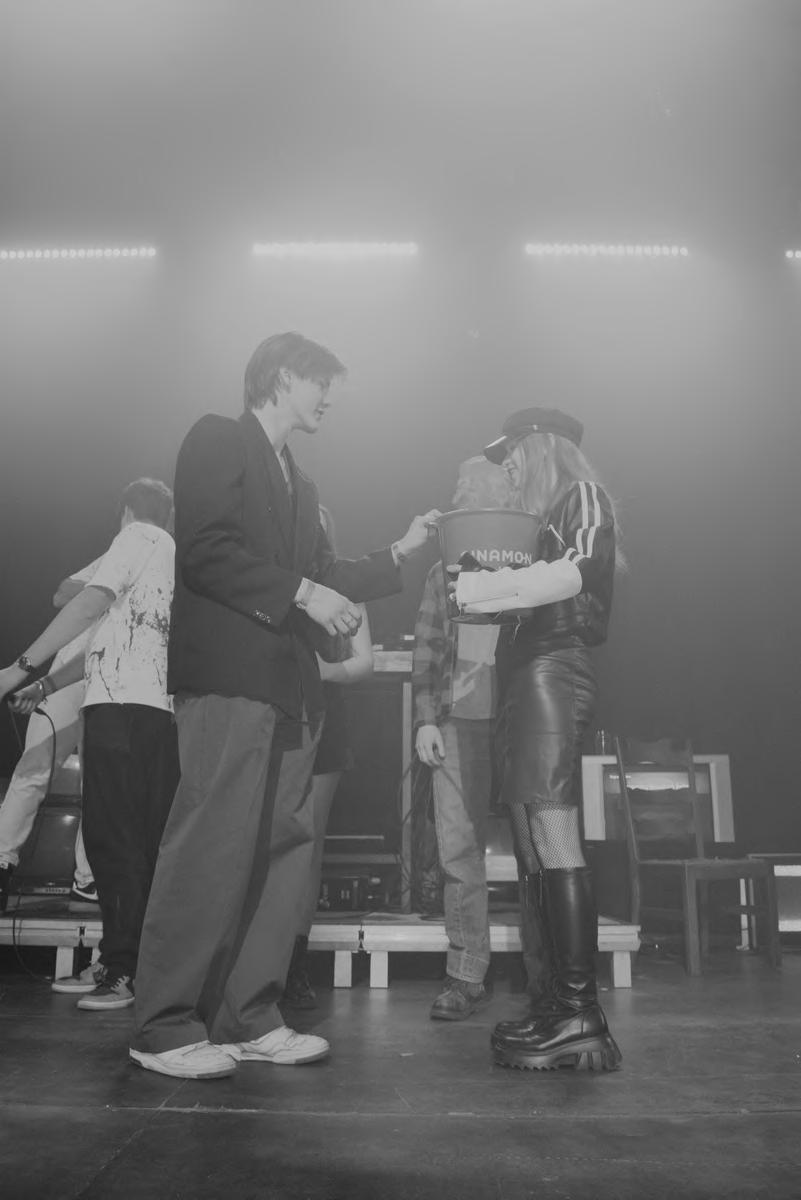


THE NON-HEAP NON-HEAP
Article by Jēkabs Rūsis
Design by Lauma Simsone
EEFFECT FFECT

Ever done something dumb that started small? You might know that it’s a rhetorical question because you definitely have
once
upon a time, there lived a guy named Eubulides He was a student of the Megarian School, formed by a pupil of the famous Socrates. Eubulides is credited with the first formulation of the Sorites Paradox, which explains our face-palm-worthy actions and their results.
it
goes like this if there is a heap of sand and someone very dedicated takes sand grains off the heap one by one, when does the heap stop being a heap? Is there a singular grain of sand that made the difference? Well, no, but the overall effects are still there. If you walk in on the dedicated sand-picker and it’s a heap, and an hour later there isn’t a heap anymore, it is time that made the difference, not a single grain of sand. Presuming that you sat next to him for that whole hour, you wouldn’t say that it had become a non-heap at a single moment The change happens gradually, but the outcome is absolute
3
4 THIS 5 AGAIN
very neat theory is applicable to humans as a whole our daily decisions, technological development, and their outcomes.
Let’s jump into what we all like best the scrolls and the reels. You just finished school, went home, and ate dinner Gotta study, but wait a couple of super funny reels won’t hurt me. As a matter of fact, they might help boost my mood. Now you enter the Sorites Paradox: one scroll—nothing, two scrolls— nothing… Thirty minutes of your dear study time have turned to dust.
BAM!
As described previously, a single reel of Ashton Hall’s morning routine didn’t actually shorten your study time they all together did. So maybe don’t start next time, but that is just a proposition. I’m not one to tell you what to do. Nevertheless, this is something very narrow and individual-focused.

were born in the 2000s and grew alongside tech advancements. Nevertheless, we have adapted to them and learned to incorporate them into our lives rather successfully The question is was there a single day, month, or year when smartphones and computers shifted from just a helpful tool to a basic necessity?
Most would agree that the answer is negative. Nevertheless, when we zoom out and look at the heap an "hour" later, it is not a heap anymore
We could observe AI in the same way It is way easier to write an email, generate the perfect summary or essay with the hallucinating robot, but it’s still far from good. So, the question to ask yourselves stands 6 when will it become a non-heap?
HOWEVER
, the main thing I wanted to discuss is the velocity at which the world is advancing and how we actually don’t realize it ourselves No worries, no historical knowledge is needed, as I will help you think about the speed at which humanity has developed. It is often considered that the "taming" of fire is the first major achievement of the human race (1.5 million years ago). Then, in 3000 BC, came the invention of the wheel, followed by a gap until the next big thing the printing press (1440), which boosted literacy and can be considered the reason for humans becoming smarter than the average hunter-gatherer or medieval peasant
, there is quite a considerable gap until the Industrial Revolution (1760s) transforms the world. Next comes the invention of the telephone (1876), followed by rapid development in—as vast as it might sound—nearly everything. Looking at the past 30 years only, humans have gone from having to carry around bricks in their pockets to 90% of the Earth having a smartphone




By Kārlis Strante
TTTTTTTTThis essay is like no other, in the TTTTTTTTsense that its far more personal TTTTTTTTthan any of my other work. It is TTTTTTTTabout how English has come to dominate my life, and made me lose touch with the language I was born with.
Like many of my coursemates, my talents did not lie in humanities, but rather exact sciences such as math & physics when I was younger. This led me to be rather neglectful towards developing my language abilities, after all I already knew my native tongue Latvian well enough that I could speak it, and English had blossomed with my vocabular y being richer than many of my classmates.
This was all fine, until I star ted dreaming in English. Waking up, not in a cold sweat, but a foreboding feeling that maybe, my second language was no longer English. I felt immense anger, at myself and other. Blaming others, such as strict teachers, for my distain for Latvian, and myself for indulging in English media You see, my family prides itself on being Latvian, having a Latvian surname and tracing our roots to this nation alone. Due to this, I felt like I had a duty, a duty to protect my identity.
I decided to maximize my exposure to Latvian. I star ted reading Latvian books, such as “Kalendārs mani sauc ” , žurnāls “Ir ” a Latvian political magazine and watching Latvian news regurlarly. As noble as these pursuits the truth is that although I have noticed my librar y of words growing larger, I nonetheless default to thinking in English. This is attributable to what I am thinking about being technical with a lot of English terms that I do not know direct Latvian translations to, but most of the times it is simply because
I started dreaming in English
“
I am more comfor table thinking that way. This might seem like a non-issue, something that perhaps others do not worr y about. For me it has been an issue not only in personal matters (mainly admonishment from family members) but also professionally, as many times during my internship, as well as inter views, I am confronted about this problem by strangers. Although this has made me in some sense more determined to “relearn” Latvian, it has also made me feel like absolute shit. This insecurity has made me less comfor table speaking in general, fearing that someone might feel the need to correct me, or perhaps get the idea that I am uncultured and uninterested in Latvian culture.
I titled this essay “ The English Disease” because I feel that, like a disease, English has made me feel ill with insecurity and judgement, leaving me to helplessly look for hope, by consuming more Latvian media I know I might be the only one who experiences this, but regardless me listening and reading to Latvian has definitely made me appreciate the language more, making me more interested in its study. Nonetheless, I can only conclude that perhaps it might take more effor t to have Latvian be my first language again, it might take more strength and maybe one day, I will dream in Latvian again.




THE HUNGER GAMES OF THE Real World
In light of the release of the newest volume of the famous Hunger Games book series, I figured it may be interesting to reflect on the dystopian tale, and conclude that, perhaps, these stories are actually telling us something important. If you are unfamiliar, Suzanne Collins’ The Hunger Games is a dystopian fiction novel that depicts a world built on power In the series The Capitol controls twelve districts through fear and manipulation. Each year The Hunger Games are held - a savage battle to the death with 24 tributestwo from each of the districts. Watching these films and reading the books as I get older I cannot help but compare the so-called “ludicrous” ideas to the present reality, and undoubtedly see parallels between the two worlds.

The Hunger Games’ world is strictly controlled by the socially highest and wealthiest people living in the Capitol. The rest of the population - the people in the districtssimply live by their r ules. It just so happens that these r ules often benefit the people coming up with them, while the rest suffer the consequences. An event I associate with this idea of lawmaking and r ule-setting is an one that happened not so long ago Donald Tr ump’s inauguration. The event was attended by recognizable names such as Jeff Bezos, Mark Zuckerberg, Elon Musk, Sam Altman, and countless others. It is rather ironic that on the front lines of a new presidency stood the richest and most influential figures in American society.

Of course, not all of these individuals actively enforce the money-power hierarchy, but their mere presence enables it. More troubling e xamples, like Elon Musk, publicly and problematically e xpress their wild opinions and use their wealth as leverage to get whatever they want.
They say money can’ t buy happiness, but surely it can buy power .
Another moder n-day comparison to the famous book series that I can’t help but notice is the Met Gala. The annual fashion event is regarded as the world’s most prestigious and glamorous, star ring famous Hollywood actors, Oscar and Grammy winners, and “anyone who’s anyone.” What makes this parallel so striking are the dare I say — insane outfits many of these celebrities wear In The Hunger Games, the richest and “most valuable” people living in the Capitol also sport such e xtravagant outfits — color ful, elaborate, and outrageous. The comparison makes the lines between reality and fiction seem almost transparent. Additionally, a ticket to this e xclusive event costs around $75,000. This vividly shows the two opposing sides of the world — celebrities walking in elaborate, custom-made outfits costing thousands, while millions of people worldwide str uggle to afford basic needs.


Perhaps the most jar ring parallel lies in global inequality. In Panem, the Capitol thrives while the districts star ve. In our world, a similar divide plays out. The richest individuals and corporations accumulate wealth at astonishing rates, while billions live in poverty. Even within developed nations, the wealth gap has widened, and basic sur vival feels like a game of luck — or, as voiced in the books, a game of odds. Half the world is star ving, while the other half obsesses over being skinny This duality is not just ironic — it’s cr uel. It reflects a system where food isn’t scarce but unfairly distributed; where suffering isn’t invisible, just ignored; where the poor are shamed for their conditions, and the rich are glorified for their consumption.

In The Hunger Games, hope is not lost — it is regained through rebellion and through people who dare to care. Similarly, it should also be in our world we should care enough to stand up for what we believe in and also call out what we do not.
If The Hunger Games teaches us anything, it’s that change is possible when ordinar y people refuse to play by cr uel r ules and instead create new ones grounded in justice, empathy, and solidarity.
3 PART MEDITATION
We live in a post - political, - capitalist, - industrial, - TRUTH era, to name a few.
So, what's left? Let's roll it back a bit.
ART IS A REFLEC TION OF SOCIETY
This statement doesn’t require much convincing, in my humble opinion. Historically, art has always followed the trends of society and at times created said trends Furthermore, the artistic eras have always acted like a Yin and Yang - each next a counterpoint to the previous.



TRUTH AS AN ART
what is left after postevery-thing?
Fairly recently, we existed in the postmodern era - think Warhol, the Guerrilla Girls, Žižek. What follows is metamodernism, yet it struggles to define the current moment Much of contemporary art is a splish splash of abstraction, performance, and shock value. In a metaphysical, non-constructive, AI-saturated cultural landscape, metamodernism becomes lost in the sea of all else.
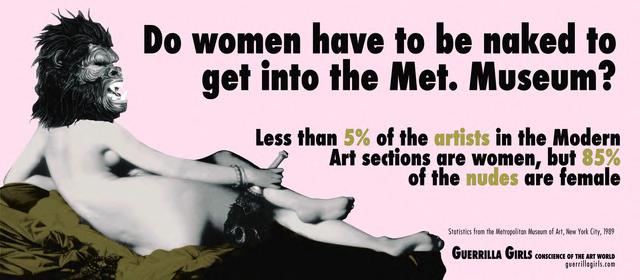
“A term used to describe the era where public disputes over what is true are common and accepted.”
There no longer is a “truth”. We exist in post-truth.
Truth is no longer objective, it can be discussed, disagreed with and viewed as subjective. Examples include flat earth believers, vaccine deniers and others. While these may be more extreme cases, they are also representative of the larger feeling of the world
By this metric, Truth can be likened to Art, in that the many different theories of Art too dispute over its objectivity and meaning. So, with no united art movements and a post-truth environment, it would seem that there is nothing left.
No cohesion, no unity, no one truth


Article and Design by Anna Marta Ozere
THE INDIVIDUAL SELF
WHAT IS LEFT?
When it feels like nothing can be trusted, you yourself are part of what is left. However, in a post-truth, post-community era, the self may start to feel like a prison. When half your life is spent online, reflection and growth become eras, personality becomes brand and authenticity no longer exists. We are encouraged to focus on personal growth, healing, mindfulness, yet only through a consumer lens. The individual self remains, but not unchanged. True inner life cannot be fueled by outside resources, true inner love requires lengthy conversations with oneself and real understanding of that self
LOVE AND COMMUNITY
Here love is also meant in a broader context of love for the world. Although everything could be going to …, the simple pleasures of life are what make everyday tolerable and even enjoyable

In the more traditional sense of the word, it is hard to feel true love and community when we are daily told to focus on ourselves, yet the people around us are possibly the only way out of our individualist, consumerist hellscape. One should view the love they give to the world as the driving force of their actions. Love is a closed economy, if one chooses the right stakeholders.



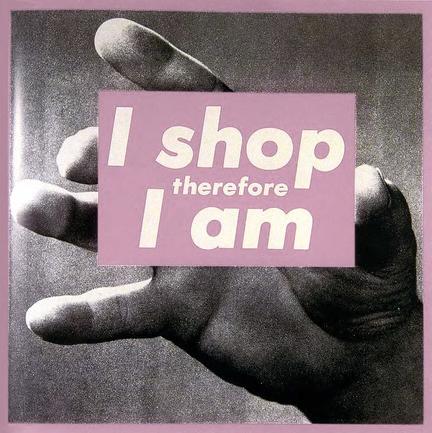
THE METAMODERNIST EMBRACE OF OSCILLATION; LOVE AS AN ART

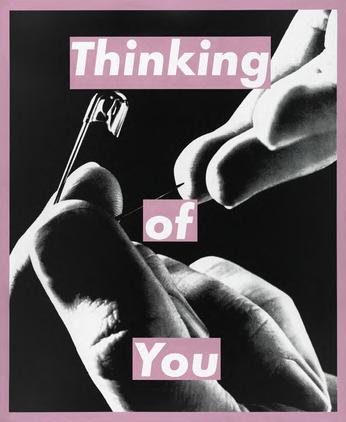
e recognise oscillation to be the natural er of the world.” - Luke Turner in the amodernist Manifesto world that often feels cold, corporate, and onnected, the act of choosing love omes a radical oscillation. Love, in this text, is a conscious practice, which should be especially exercised by those caught in the machinery of productivity.
Love is an oscillation. Love is resistance Love is an art.
I
T’S A STICKY ONE STIIILLLLLL…..
a.k.a the fight for government efficiency and debureaucratization in Latvia
For my glorious return to writing for the Insider after a 1-issue break, I decided to tackle a topic that has made my head spin for quite a while. There has been a lot of debate around the general efficiency of the Latvian government, the level of bureaucracy in our countr y and the general effectiveness of Latvia as “an operation”.
While general discourse around this topic isn’t something that popped up just a few weeks ago, it still has gotten way more space in the media and general public sentiment in recent weeks At its core, this is a debate that is several hundred years old, for as long as governments have existed, people have tried to find ways to make their operations more efficient and suited to the people these governments are ser ving The fact that we are still talking about this today, means that no meaningful conclusions have really been drawn. I do not know if this ar ticle will ser ve as an answer to this question, but it will most definitely raise some interesting questions and dive into the topic with what I consider to be a fresh angle.

First to lay some groundwork - in a repor t done by Eurostat in 2023, Latvia’s total percentage of employed people that work for the Latvian government is , with Estonia coming in at and Lithuania at . 6 9% 5.5% 6.9%
Needless to say, many have called for the operations of Latvia’s government agencies to become faster, more flexible and less cluttered.
The main issues people usually raise are as follows:
1) there is a general lack of people being willing and able to take responsibility for decisions;
2) getting things from the Latvian government or local municipality governments like building permits is a super slow process;
3) there are several people in each of Latvia’s government ministries and agencies that have little work to do and have been sitting in not needed positions for years;
4) there is generally too much bureaucracy in Latvia;
Additionally, the World Bank rated the Latvian government ’s efficiency at , with both of our Baltic neighbours being ahead of us (Lithuania at and Estonia at ) 75% 79% 89% 1) 2) 3) 4) 5)
5) the Latvian government is spending money needlessly on projects that do not yield any tangible gain

I will dive into each of these claims one by one, dissect them, comment on them and give you some food for thought for the next time you hear these types of discussions.
01
The problem of responsibility
The stor y of a person needing something from a cer tain ministr y and being referred to 8 different depar tments before getting the thing you need is almost as old as time There truly seems to be a problem that people working for the Latvian government do not want to take responsibility for cer tain decisions or issuing cer tain permits.

It looks like there might be an internal issue of how these people are trained, how we teach responsibility taking in school and families and the overall mentality we as Latvians have.

Here I do seem to agree, people need to make decisions and be held accountable for them when they mess up
03
The issue of too many people working for the Latvian government
Here I also do agree, but once again, many questions arise While it is true that the Latvian government does employ a lot of people in needless positions that could be consolidated, are we sure that there are competent and willing people working in these ministries currently that would be willing to take on the extra work? What do we do with the people working these pointless jobs - do we just fire them?
If we do fire them, what exactly are they going to do with their career fur ther? Are we not creating a big issue of unemployment here? Does Latvia have the right means in place to retrain these people that are going to be unemployed, likely for an elongated period of time? Are there feasible and realistic places for these people to work next? I’m not sure that all these things are the case in Latvia, but I am ver y hopeful to be proven wrong
02
The overall slowness of how we get things done in Latvia
Here many truly putrid examples are in order, one could talk about the disaster that is RailBaltica, but that seems like beating a dead horse at this point To this question I raise a counter question - what is the solution here? Do we fire a bunch of ineffective people, raise wages and tr y to snipe people from the private sector? Do we constantly audit our government and penalize it for inefficiencies?
Noticing an issue is one thing, it takes a truly innovative person to be able to find solutions.
It might be the case that these innovative people do not work for the Latvian government, instead opting for a more lucrative career in the public sector.
It will be ver y difficult to lure these people to the public sector, without offering them competitive wages, which again means rising costs for an already overspending nation
04
Bureaucracy
Sure, I do agree that bureaucracy and the overarching nature of it is a problem in Latvia and it ties into all of the previous issues mentioned
Here the issue lies in quantifying bureaucracy. Is it the time it takes for cer tain permits to be issued or decisions to be made? Is it the amount of paper work needed to get cer tain things done? Nobody is really sure
If we say we want to cut bureaucracy by, let us say 20%, how do we even begin to quantify this drop?
We need to find the main drivers of bureaucracy and slowly star t to eradicate them, but the problem is that no one really knows where to star t.
I fear it is rather likely that this will continue to be a Goliath issue in this countr y for years to come

05
The problem of reckless, needless overspending
Many people like to liken the Latvian budget deficit to running a business People argue that cutting let ’ s say 10% in costs would be no issue for a business, so it shouldn’t be that much of a problem for Latvia’s government
Here the issue is that you can’t draw a strict parallel between running a business and a government, these things are inherently ver y different.

This is the reason why a lot of businessmen, who go into politics and swear that they are going to bring efficiency and prosperity fail miserably.
Where do we begin to cut these costs and how do we not truly screw over the working class or significantly cut down on the welfare state?
Latvia is not the most prosperous countr y in Europe and a lot of people are ver y in need of government benefits, so it would be rather foolish to leave them out to dr y
Now I will provide some closing comments and even more questions.

GI do not think it is as easy as just firing a bunch of people and getting rid of paper work If that would be the right answer, we would have already done it
For the people preaching things like DOGE, I would in their place be rather cautious of suppor ting the work of an unelected, ketamine-crazy neo-fascist who got his slimy hands on the USA government through the means of money and ass-licking.
It still is yet to be seen if the ideas of DOGE will in any way bring efficiency or prosperity. Similarly, I would love to see a concrete example of what countr y ’ s footsteps we follow to build an efficient government? Which countr y is truly efficient and works well?
I am quite sure people in ever y countr y complain about their government being slow and inefficient. It might be the case that we as a society have not yet really figured out countr y governance and there are still many lessons to learn.
OVERNMENT
EFFICIENCY IS AND WILL STILL CONTINUE TO BE
A HOT TOPIC OF
DISCUSSION.
This is why, dear reader, I encourage you to delve even deeper into the topic and when you hear a supposed smar tass talking, step on their toes a little bit and question what they are spewing, because much of it does not amount to anything that makes a lot of sense.
I once again thank you for your time.

DID YOU CHOOSE OR DID
YOU
GET CHOSEN:
WHY DO FANS ST SUPPORTING THEI FAVOURITE
FOOTBALL C
Often when you ask a football fan how and why they had chosen their favourite football club, they say that the club had chosen them and all of it happened out of the blue All of us know that this is seldomly accurate and there has been a reason why we get hooked by certain clubs, though. In this article, my dear reader, I will carve out the most common reasons why people choose to join their clubs along the ride Also, this analysis probably applies to other team sports as well but I am no expert.


Local Clubs

ArticlebyAnnaGogebashvili DesignbyPaulaVerdin



FamilyHeritage
Family influences many of people’s choices in life, including football preferences. Often parents make sure that their child shares their passion for a certain club; or children subconsciously get under influence themselves. One may inherit support for a local or a foreign club, it does not matter, the main thing is that it is family heritage. This is indeed a great and precious way to remember your ancestors and reminisce on family memories related to football. Although, some choose to be mischievous and support rivals of their fathers ’ or brothers ’ favourite clubs for the sake of banter.
Many people opt for the safe option and support their local city/neighbourhood clubs. It must be easier to do so if you come from a city/country with a nationwide passion for the sport, though. You are more likely to hear that someone from Riga supports Barcelona rather than RFS, but there still is some love for the home team, especially when it plays against a European giant at the international level. Still, those clubs may not be as popular but they have their audience and ultras who love supporting them. Some people get lucky and come from places like London or Milan or even Buenos Aires, so theydo not look for foreign and popular options for some extra dopamine from football. At the end of the day, local club supporters are some of the best examples of loyalty and love for home.

Player Power
How many international fans did Al-Nassr have before the year 2023? Probably none. My point stands – players have the power to mesmerize fans to the extent that they root for the club they play for But then it gets divided into two categories, one part follows the player to the new club if he ever transfers out and the other part likes the club so much that it stays loyal even if he moves. People even support some national teams solely because of their favourite players: all of us know those guys who root for Argentina or Portugal harder than their own countries
Managers’ Inf luence
Some football fans tend to enjoy the play styles of particular managers. Just like how it happens with players, coaches can inf luence people to support the clubs they work for from time to time Jose Mourinho is the ultimate example of that as the man can make people support even Tottenham or Fenerbahce simply because he is the boss there He is undeniably the main character of any club he works for and the league the club competes in. However, he might be the reason why people started supporting Chelsea or Inter Milan, but then eventually stuck around with the clubs I have to confess, I fall under this category

The story is that I liked a certain manager whilst he was the head coach of a national team at the Euros in 2016 and the very same summer he went on to manage a club in the Premier League Long story short, the club has changed six managers since then but I have been around for eight years now, all thanks to Antonio Conte.

Glory Hunters
When someone is new to football, they might decide to just go for the support of the club that is doing well at the moment For this reason, a newer generation of fans is more likely to support Manchester City or Paris Saint Germain than Manchester United or Olympique Lyon Two of the latter were more popular among the fans in the early 2010s rather than now. If you think about it, there must be a correlation between the favourite clubs of each generation and the most successful clubs during their youth No shade if you are a part of this segment, you will only be considered a true glory hunter if you start hopping from one club with a momentum to another.

Random Choices
A number of people just randomly choose to support clubs like Stoke City and go along with it If you are from Stoke it makes sense, but as someone born and raised in Riga, it is irrefutably random But I get the hype, you might have watched a match of Stoke in 2015 (I may or may not be referring to some specif ic match) and thought it was a cool club – fair enough, it is less boring and generic because everyone rotates between the same popular clubs usually And, the Championship is great to watch
Did you recognize yourself in any of these? If you didn’t – don’t worry, the main thing is that you love and support your favourite club.
“no”
is such a simple word Saying it to other people when receiving an offer or a request, however, is difficult for many People-pleasing is a common issue all around the world and, unfortunately, it is far too normalized by society with the constant need to appear likable in every situation Especially in academia or professional work, we often feel obliged to make a great impression, seem r eliable and obey demands from colleagues However, this can lead to overworking, burnout and even manipulation to use the “friendly” person for multiple projects
WHY IS BEING NICE OVERRATED?
Being nice to everyone all the time might seem like a good opportunity to earn karma points or appear visible to others, but at the end of the day, it is only the ones that stand on their business that get everything their way. To quote Rihanna, “All of my kindness is taken for weakness” The first few times, people appreciate your kindness, then they start visioning an opportunity: while talking others into doing something is quite difficult or time-consuming to wait for a definitive response, the people pleasers will always say yes, no matter what Because they simply cannot let you down. This is where the problems arise, because people pleasers have a life on their own too. And most of the time, it’s quite a busy one.
Therefore, they must take on a lot at the same time, leading to increased stress and burnout Sadly, people pleasers do not even notice the cons of their actions, as at the end of the day, everything gets done and everyone is happy – exactly how they imagined. I must mention that often it is not just one person who expects something from the peoplepleaser, but multiple because, as we all know, “word of mouth” is the best advertising. So, society sees people-pleasers either as their next victims or backboneless – not being able to stand on their business
C O O L G I R L S
1 Your boundaries and personal time are not considered
Reasons to stop being “nice” to everyone: “All of my kindness is taken for weakness”

2. The appreciation for your work is minimal or non-existent.
3. You lose time and opportunities to work on yourself.
4 People see you as a doormat or service provider
5. Your own mental health and wellbeing are endangered.

D O N O T P E O
-RIRI
So, as you may know, I am a self-proclaimed identity crisis expert, but how about people-pleasing? I have experience in this field too, however, I have mitigated the need to be overly nice to anyone I meet Here’s how:
FIRST,
set boundaries – This is very important in school or work because those are the life situations in which you have many tasks to complete and must focus on your personal improvement There is no spare time to spend doing favors to people who might not even be that close to you Boundaries are the best way to decline an offer without actually saying “ no ” , because when informing a person about your boundaries, schedule or needs early, they might not even ask you for a favor in the first place, purely out of sympathy
SECOND,
THIRD,

do not be afraid to be selfish or a little cold – do not worry, everyone prioritizes themselves anyway. Just learn to switch off your kindness when being asked to do something that crosses your boundaries. This doesn’t mean that you must be mean, but rather strict or real with your answers. People will still remember all the times that you were nice to them, except they might finally respect your decision not to participate in their favor. If you ’ re still not persuaded, remember that valuing yourself does not make you selfish, your worth isn’t tied to making others happy, and their feelings are not always your responsibility.

surround yourself with supportive people – I know this is easier to be said than done, but this is genuinely the best solution Supportive people will get your pains, are less likely to ask something from you and won’t get mad when you say “ no ” Additionally, they might be a great sport around manipulative people who are trying to take advantage of you. Encourage you to say “ yes ” to everything less, remind others of your busy schedule and even confront the manipulative.
( A N D G U Y S )
P L E P L E A S E
Article by Kristiāna Labanovska, design by Patrīcija Nora Bl
People pleasing can get confusing – it is mistaken for being “too nice” and might get in the way of using an actual opportunity presented by someone It is also quite hard to get rid of, but it’s better to even start with just
some small, simple steps until you ’ re fully ready to say “ no ” to someone. Of course, there will be ups and downs too Some WILL get offended, mad or disappointed, but that will only reveal the true colors of people.
ū
mentāle
Remember, saying "no" doesn’t make you unkind it makes you authentic. The more you honor your own well-being, the more you create space for genuine connections and a life that truly aligns with who you are.
Picture this: You are heading into one of your first inter views of the season. You still are not sure whether you are really fit for the position, especially taking into account the slight lie of saying that you have extensive experience in R language on your CV, knowing damn well that the only reason you passed those assignments was thanks to your friendly classmates as well as the wonders of AI Safe to say, you are seriously ner vous. To make matters worse, your inter viewer is the director of the depar tment - on a daily basis, making big money in cooperation with other people in the big positions These type of people are always the hardest to readdressed in per fectly ironed suits, wearing cufflinks wor th more than your monthly rent cost and having the most neutral of facial expressions It really is impossible to say if your answers to the questions made him realize that it was a mistake calling you into the inter view or that he should cancel all the next inter views because you are the per fect one As you sit down, there is a slight flash of something colour ful Behold, the tough guy is hiding some crazy, funky socks underneath those classy suit pants
Does your impression of him change?
show ‘em








In a Har vard study done by Silvia Bellezza, Francesca Gino, and Anat Keinan, wearing “ crazy ” socks is defined as being par t of “ The Red Sneakers Effect ” - a nonconforming dressing behavior bound to set you apar t from others. Nonconforming as in not abiding by the rules or the social norms, considered to other wise dictate the behavior of society.





The effect? Well, that varies due to multiple different factors. This ar ticle aims to look through the points made in the research that (presumably) impact what your socks of choice say about you make people think about you…



First and foremost, the context and the intent stand above ever ything else Wearing crazy socks must not be the result of waking up 5 minutes past your “bus time” and grabbing the first pair of socks available It should be decision-driven. And some-what ignorant at the same time. Ignorant at the fact that the environment
Okay, so the environment is clear now. Thinkjob inter views, impor tant meetings, big presentations, etc. Why are crazy socks so special? Well, research shows that those who “dare” to challenge societal dressing norms are perceived as having higher status and competence And the thought process is truly does not call for such a vibrant choice of socks. A job inter view and some mismatched sushi socks? Never sounded better!
interesting - in a way, our brain tricks us into thinking so because we automatically link such a “rebellious” action with having the rights and power to defy said social norms without fear or negative consequences, signaling confidence and control
And not only that - by heading face to face with the imposed rules, “crazy-sockwearers ” showcase the act of freedom, making their obser vers perceive them as being more autonomous in their decision making


Gotcha! Best Pop Gotcha! Best Pop Culture Pranks Culture Pranks
Article by Arina Kosmaceva and Anna Gogebashvili; Design by Dominika Ignatjeva

Kids’ Choice Awards’ Slime Prank
The video of neon green slime shooting up Katy Perry’s face must be one of your childhood memories. The cruel yet typical Nickelodeon award show prank has been a matter of controversy. Nevertheless – it gives 2010s and iconic.



Timothee Chalamet Lookalike Contest

Sabrina Carpenter’s Boo Juno Position

Timothee’s immaculate acting career gets topped off by his comedic side quests. When last October the Timothee Chalamet lookalike contest had been taking place in New York City, few had expected the man himself – the blueprint to show up. Timmy’s character played its role, he did in fact show up, and announced his arrival by randomly wrapping his arms around one of his lookalikes, saying “Hey man, what’s up?”.
There definitely is the audience of people awaiting each Juno position from Sabrina Carpenter. Oh boy, how surprised they must have been when her Halloween show gave them ‘Have you ever tried – BOO!’. Well played by the short n ’ sweet blondie.


Prank Calls
Aunty Kris, it’s me! It’s Todd Kraines!



In a beautifullyproduced prank, the BBC “discovered” a colony of penguins that could fly to the tropics. Complete with convincing video footage, the prank had viewers amazed until they realized it was all digital magic. Kowalski, well executed!
For one glorious day, every featured video on YouTube led to Rick Astley’s “Never Gonna Give You Up.” Millions were Rickrolled, and it became one of the most iconic memepranks of all time. YouTube really committed to the bit.
Do not fool us by saying that you ’ ve never prank called anyone. In 2020, even celebrities were into prankcalling each other out of boredom and sharing that on TikTok. Peak entertainment? Probably, but still not better than Scott Disick calling ‘aunty’ Kris Jenner as his alter ego Todd Kraines in KUWTK .




Ever watched Home Alone 2 as a child and imagined yourself in place of Kevin McCallister whilst he was throwing bricks at Harry and Marv? GUILTY. May or may not have had an urge to execute at least one of the “harmless” pranks the constantly lost boy had been pulling on his antagonists. Definitely an inspiration!
The Home Alone Movies

Like the previous playlist, this one starts with some jazz: Erik Truffaz (feat. Nya) and a track named Yuri’s Choice. Truffaz visited Latvia on many occasions and one of his keyboard players used to hang out at KKC. The next song is from a Latvian the singer played in Židruns
project, Nielslens and un Vija Moore, (check them out).
One of the best live acts out there. A Place to Bury live band (playing in Riga on April 26) lyrics. Idles’ track is about abusive behaviours
Strangers is another excellent with quite disjointed towards women
XAVIER XAVIER LANDES LANDES
A bit of a moody atmosphere with French singer Alain Bashung and its poetic lyrics The videoclip is a delicate impressionist piece Dead Can Dance, another song for which I am leaving to the listeners to decipher its meaning. Russian Circles, a big inspiration for Nostra’s guitarist, comes next with the title Bloom.
Finally, Caribou closes the playlist with an appropriate Spring anthem.





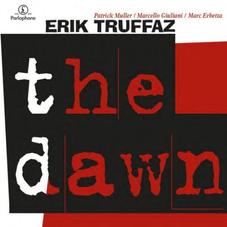





design by Rebeka Rumbēna

Playlist of the issue
Playlist of the issue



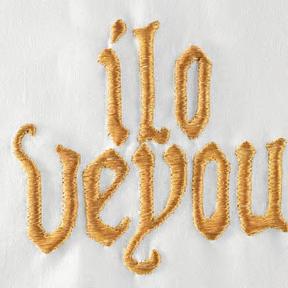

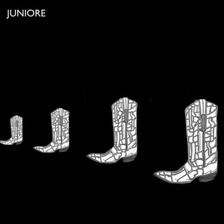


NNICOLAS ICOLAS
WHAT IS THE DIFFERENCE BETWEEN MUSIC AND SOUND?
After all, a sound is just mechanical waves converted into electric impulses by our inner ear. But this impulse has to be interpreted by our brain, which tries to make sense of it Does this playlist have a sense? At least, it has a starting point. Somewhere close. And, perhaps, even a conclusion. Far away, but at the same time infinitely closer.
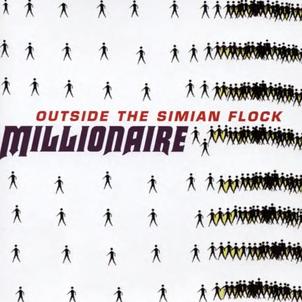
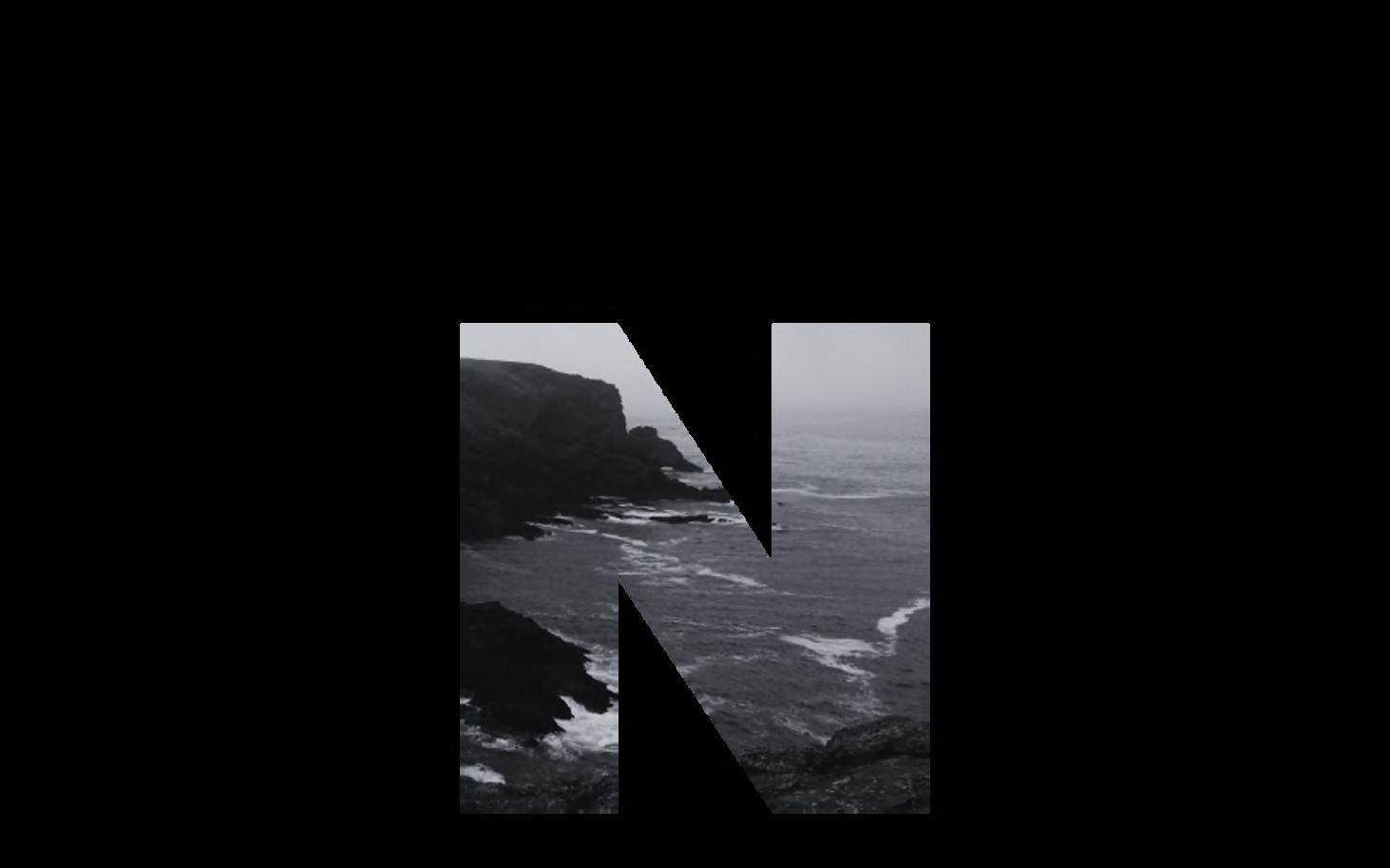


THE COMPLIMENT SANDWICH CHEF
Masters of polite critique: “I really like the lectures, but the assignments are brutal but the professor is so nice!” You leave feeling both praised and roasted.
THE SILENT OBSERVER
They showed up They listened They might ’ ve blinked twice. No one knows what they’re thinking, but they will definitely fill out the feedback form later Maybe
THE OVERTALKER THE GRINCH
This person thrives on the idea of others suffering They suggest adding impossible deadlines, surprise quizzes, and assignments that require reading 12 books in one week They seem to relish the idea of future students struggling, as if they’re tr ying to leave behind a legacy of academic suffering.
FOCUS GROUP BINGO FOCUS GROUP BINGO 1 3
Enters the room, finds a seat, and never stops talking. This person has thoughts So many thoughts On ever ything Including things that weren’t asked.
THE
GHOSTER
Signed up with great enthusiasm and then vanished into the academic ether We hope they're okay Probably still meaning to email back to the Admin.
THE ONEWORD WONDER
Ever y answer is exactly one word long. “Good.” “Bad.” “Fine.” A minimalist A myster y Possibly a legend

Ar ticle by Arina Kosmaceva and Krista Dzebale
THE
Ar ticle by Arina Kosmaceva and Krista Dzebale
PHILOSOPHER
Was asked “Do you think this course is wellstructured?” and responded with a 10minute monologue on the concept of "structure" in modern education The room is both confused and inspired. We listen and we don’t judge.
Design by Dominika Ignatjeva

THE SHORTCUTTER
Ever y question is met with, “ Well, can I talk to you about this?” Loves efficiency. Ignores the facilitator. Basically holding their own one-onone session with the professor
6 8 2 4 5 7
Design by Dominika Ignatjeva


1




2


3 5 6



4 WHICH ONE ARE YOU??? WHICH ONE ARE YOU???
The Education Committee must note that most of these ar re not meant to bring down our dear par ticipants

e so, you are always welcome to att ups. As many of them as you would like.
alue any feedback. "It was fine" or "I am not s me, because we need your true opinions.
now, we are experiencing a lot of trouble in bringing groups If you have some spare 45 minutes and wou the SA and the student body, then sign up for the focus
s Truly, Com
7 8

CROSSWORD
By Daniela Martinsone

Think you ’ re a true SSE Rigan? Then this crossword should be a breeze. Grab a pen and prove your knowledge word by word!
Write in the issue, on a napkin, literally anywhere else, just don't forget to snap the answer pic.












DOWN
1 What pulls Y2s through the hardest course of SSE Riga
2. What all cultures say before clinking glasses - cheers in any tongue!
6 The course where you analyze decisions using math, and cr y a little inside
7. When grads gather, stories spill, and the wine flows.
8 The drinking marathon that defines your first-year memor y
10. This device causes distraction in lectures, yet you can’t live without it.
Snap a pic of your answers and send it to insider@sseriga.edu.
Fastest correct entry gets featured in the next Insider glory awaits!

this could be you
ACROSS
4. What the Insider lives for—rumors, tea, and…
5. The master of themed chaos (Surname).

3. The secret sauce of group projects: shared docs, chaos, and this tool.
9. The true fuel behind late-night study grinds and last-minute submissions.
11. When people follow the group to avoid standing out.
12. What SSE Rigans lack.
13. Annual dress-up, champagne moment with glitter, where people try to not act drunk.



Have you cracked it? Prove it. BEFORE CHECKING OUTDON'T FORGET TO GRAB YOUR BI-MONTHLY CROSSWORD PUZZLE! if your smart andfast enough winner of last month

another party and an another girl for our RK y2
the new event com chief is total goals pulling off a killer party while still owning the dance floor
Can Barron Trump and Ms Lithuania, please, stop being late to every lecture
The event photos are awful no adjustments, no editing, no theme, nothing. And why is there a bottle of beer in the background of the SPONSOR pictures? Did they just get dumped on the Facebook page with no thought?
R K , M P and H K are the most hated people in y2 because they can't shut the f*ck up during the seminars
Dear SA Board '25, make your efforts much more visible for all community Incomparably lower than for the previous board and feeling like you treat it as a "work" rather than "friendships". Enjoy your time together! I know the possible instant chemistry between AC, RK, DT, and maybe FA triggered for many cool things to be happening, but if DLJ knows RK and doesnt know the name of a new chief accountant - it's a room for feedback. You can be whatever smart person and good academics but in the board you are under the spotlights. :PPP
someone in the leisure room waiting for another delulu happening in the early mornings - they even forget that colloquiums sometimes happen in W32
the leisure room again has it all! someone seen a study buddy for one guy, lunching with other, flirting with third, laughing at jokes of fourth and deep down thinking about the fifth - guess what kind of quiet confidence it builds for that someone
we Y2s teach how to have a distant lovemaybe Y1s can simply copy Before Sunset?
Y3s have you thought of proposals for graduation? or ya waiting for YR to ask someone to do it?
Looks like insider is going straight from the printer to the recycling bin…
MM and DM slopy making out in the wc was crazy, why I saw it… :(
It seems that DM(Y1) and MM(Y2) have found a spark, are they an official couple yet?
VP SLAYED the dance
they say everyone must be jealous of E.K because buscom chief is on fire
y1s were hungry - too many aggressively romantic kisses on the dance floor
Was it just me or did they takeover feel a little empty? Where were all the people?
D T didn’t seem too pleased when R R was on the stage dancing
a y2 was seen enjoying himself in the company of multiple women throughout the night. I guess those hips don’t lie
R.K. was seen embracing a sensual dance
2.5€ shots??? GIMME MORE
Some very happy Y2 faces could be seen on the dance floor, guess everyones got their first choices in the exchange
K.P. was seen enjoying the dance maybe a liitle too much, standing in the first row, phone in hand, with a cheeky grin. Naughty mynx…
it seems that K.Š. and E.U. have some chemistry
The chief of SSERiga was so hungry kissing with RGSL girl
EB and LS were noticed gossiping for the entire party
A certain estonian Y1 boy going through girls as fast as Morten was teaching us macro models
it seems like E.M has had an inner glow-up. he has become nicer and more self-sufficient :))
saw a chief making out again, was it the same girl or is he just such a player? not to mention Baltic bonds getting quite sensually established on the dance floor takeover really seems to have taken over some people’s self control ;)
Spotted - a certain FE TA and A.K. in the lobby. Just a casual chat, or was there a little extra in the air? Some combos you see coming, others take you by surprise…
It was truly unbearable to sit in Macro lectures while a certain someone was there with his useless questions... (dude we get it that u know more, but it's not impressive at all since you FAILED THE WHOLE OF Y1)
RA and L seen together a lot lately, wonder what they have going on
Latvians are dumber than Lithuanians
Prank of a century
R.S has been lacking recently. Too much goofing around and no business
K.V. Y2 is doing the weirdest shit ever all the time
I'm still wondering how did they pick people for the iFund trip?? ngl the group looked so random xD It's all about networking these days, isn't it?
You may think that when you have a teambuilding with 3 COMMITTEES, some sexy shit should happen... nothing, absolutely nothing you guys are BORING
Sources have confirmed some outrage over the alleged lack of gossip in feb. Readers are FUMING. “Where’s the tea??” they cry. And yet not a single scandalous soul has submitted a word. Not one whisper. Not even a poorly written rumour in Cambria.
R.R. and his lover A where spotted sharing a kebab by the kebab van in Dagda Really happy for R.R. for feeling more comfortable with who he is
the Y1s are not really giving energy
Imagine being bold enough to kiss someone, but not brave enough to say Hi after.
R and R getting close, spring spark or something more?
WHERE IS THE YEARBOOK PHOTO SUBMISSION EMAIL


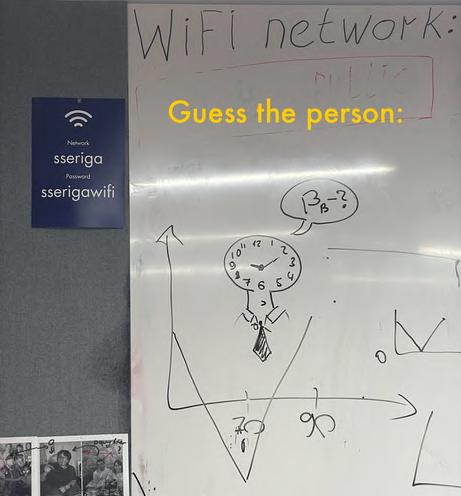






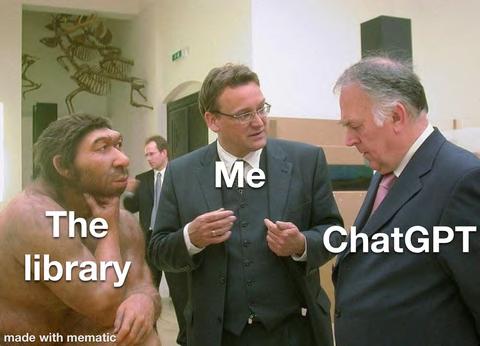




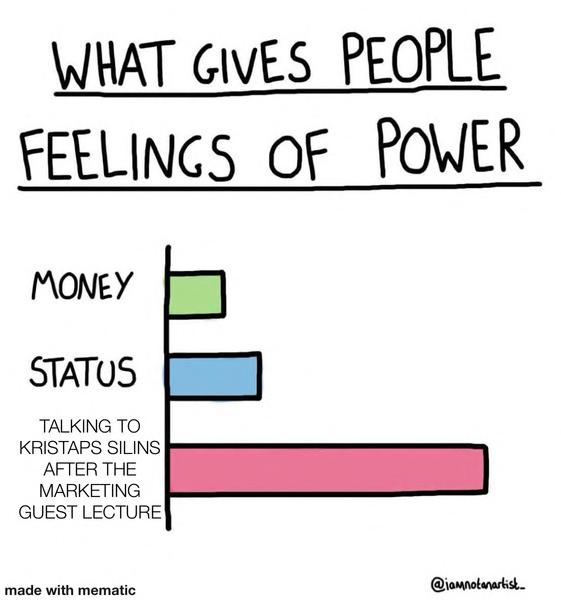


H O R O S C O P E S H O R O S C O P E S
May will be a month of reflection for you, take some time for yourself and look back at your life recently You will find comfort in the fact that you are at peace with what has been happening to you
Taurus Taurus Taurus
You need to get back on Tinder Hinge or Bumble in May The perfect pair is waiting for you and is just one swipe away Don’t let this opportunity for true love slip away
Everybody who is telling you to cut down on your screen time is dead wrong You need to scroll more reels and keep crafting the perfect For You page This will make you unstoppable
That toxic person from 2024 will be back in your life in May, don’t let them take control of it Stay strong and resist the temptation to restart something that was never going to work

May will be a month of great fashion choices for you It is time to be outlandish and go for more out there looks, people will notice and respect you for it
The stars have aligned in a perfect way for all Libras when it comes to the monetary aspect of your life It is time to splurge out on all the big purchases you have been meaning to make Money will lose its value over time and it’s important to spend it while you still can
Virgo Virgo Virgo
Libra Libra Libra
Don’t overshare in May In May you will find that it would have been better to keep your mouth shut rather than telling people things you might regret in the near future
Scorpio Scorpio Scorpio

It is time to become a regular at your local bar You should go there as much as you can and start conversations with the bartenders It will be so rewarding when you get asked: “the usual?” at the bar all summer

Don’t start new things in May, as they are bound to fail Cut off that talking stage and leave all new habits for the summer it is better not to risk it before an eventful and fun summer
Sagittarius Sagittarius Sagittarius
Make sure to take some time for your friends in May Write to them and meet them more than you usually do They and you will appreciate the strengthened connection right before summer
Aquarius Aquarius Aquarius
May will be a month of self-discovery for you You will learn a lot about yourself and how the people around you impact your life Be mindful of these new takeaways and don’t ignore them
It’s time to take up new things Start a new hobby, go on some dates, get back into reading or films May will serve as a vessel for your new chapter in life
Aries Aries Aries
Capricorn Capricorn Capricorn
Pisces Pisces Pisces














the TRIBE fINSIDERS



Pa
Timurs Anna
Elīna
Rebeka
Madara
Arina
Anna
Katrina
Alise
Anete
Eduards
Daniela
Laura
Oskars
Renārs






















Zlata
Beatriče
Inese
Kārlis
Kristiāna
Gunta Patrīcija
Lauma
Annija
Jēkabs
Paula
Elza
Daniels
Aleksandra
Arīna
Dominika
Danija
Kārlis
Ilze
Zane

